










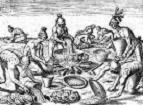
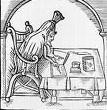



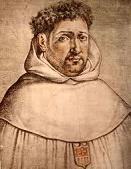

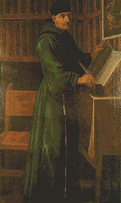




1590 On Feb. 26 the Baltic seaport of Ivangorod is returned to Russia. On Mar. 14 Henri IV of France defeats Charles of Lorraine, duke of Mayenne at the decisive Battle of Ivry, then seiges Paris in Sept., causing a famine, driving some to cannibalism until it is relieved by Mayenne and Duke Alessandro Farnese of Parma. On Mar. 21 after abandoning Tabriz and Georgia, Shah Abbas I of Persia signs a peace treaty with the Ottomans, ending the war begun in 1577, and promising to end all Shiite propaganda in Sunni Ottoman lands and stop persecution of Persian Sunnis, while ceding a large portion of NW Iran incl. E Armenia and Azerbaijan; the Ottomans now rule the Caucasus as far as the Caspian Sea. On Apr. 6 Sir Francis Walsingham (b. 1530) dies, having bankrupted himself in the queen's service with a European network of 50 spies, and Sir Robert Cecil (1563-1612), son of William Cecil, Lord Burghley takes over his secy. of state duties, being called "my pigmy" or "my elf" by the queen because of his deformed back and stunted build; the prejudice against female rulers still PC, he says of her, "Our blessed Queen was more than a man, and in truth, something less than a woman", to which her answer is that, though as a "woman wanting both wit and memory", whom God had made "though a weak woman, yet Thy instrument", she is Henry VIII's daughter, and "I am a lion's cub, and inherit many of his qualities"; meanwhile an ancient prophecy of Merlin the Druid is trotted out to prove she's okay: "Then shall a Royal Virgin reign, which shall stretch her white rod over the Belgic shore and the great Castile smite so sore withal that it shall make him shake and fall" - it's as easy as a phone call? In Apr. Robert Devereux, 2nd earl of Essex secretly marries Sir Francis Walsingham's daughter and heiress Frances Walsingham (1567-1631), widow of Sir Philip Sidney; the queen doesn't find out till autumn, and is pissed-off for two weeks before she forgives him, although she never agrees to receive his wife as his countess. On May 1 James VI and Anne of Denmark land at Leith, and she is crowned queen of Scotland on May 17; she miscarries in the summer, which messes up her tubes? On May 9 after recognizing the royal title of his nephew Henry IV, old fart Charles X (Cardinal Charles de Bourbon) (b. 1523) dies in prison in Fontenay-le-Comte. On Aug. 18 a relief expedition reaches the Roanoke Colony and finds it deserted, with the word "Croatoan" carved on a post, indicating that they had gone to Croatoan Island to the S to live with the friendly Hatteras tribe, which in 1650 migrates to the Lumber River Valley 200 mi. away, becoming the Lumbee Indians of Robeson County, N.C.; at the time, though, nobody can figure out what happened to them, and suspect the worse; Roanoke Island becomes submerged by modern times - see that great episode of the Fess Parker TV series "Daniel Boone"? On Aug. 27 (since 1585) Pope Sixtus V (b. 1521) dies, ending his plan to convert the Roman Colosseum into a wool factory for ex-hos, and on Sept. 15 Rome-born cardinal (since 1583) and Inquisitor-gen. (since 1586) Giambattista Castagna is elected Pope (#228) Urban VII (1521-90), but he dies 12 days later on Sept. 27 before he can be crowned, and on Dec. 5 Niccolo Spondrati (Sfondrati) (Sfondrato) is elected Pope (#229) Gregory XIV (1535-91), plotting to depose Henri IV; relics (organs removed during embalming) of all popes from Sixtus V to Leo XIII (d. 1903) begin to be kept in Rome's St. Vincent and Anastasio Church near the Trevi Fountain. In Aug. heedless of his little 1576-7 Tower stays, English radical Protestant MP Peter Wentworth (1524-96) pub. a tract titled A Pithie Exhortation to Her Majesty for Establishing her Successor to the Crown, suggesting James V of Scotland as the likeliest candidate, which pisses-off the queen, causing him to end up in the Tower again, this time permanently, leaving son Thomas Wentworth (1559-1628), who continues his daddy's program of opposing royal absolutism in Parliament. On Sept. 3 the Battle of Doire Leathan in SW County Donegal, Ulster, Ireland sees a force of Scottish Redshank mercenaries working for Queen Ineen Dubh on behalf of her son "Red" Hugh Roe O'Donnell (1572-1602) (great-great-grandson of Hugh Roe O'Donnell, Tyrconnell king in 1461-1505) (who is imprisoned in Dublin Castle) defeat and kill his elder half-brother Sir Donnell O'Donnell (b. ?), the leading rival to the lordship of Tyrconnell, allowing him to finally succeed in 1592 on his father Sir Hugh O'Donnell's abdication after he marries Rose O'Neill, daughter of Hugh O'Neill, 2nd earl of Tyrone in 1587. On Oct. 16 Italian madrigal composer Carlo Guesualdo da Venosa (1566-1613) brutally murders his wife-cousin Donna Maria d'Avalos and her lover Fabrizio Carafa, duke of Andria after catching them in the act in the Palazzo san Severo in Naples, and leaves their mutilated bodies in front of the palace for public view; he later murders his 2nd son by Maria after suspecting he's Fabrizio's; being a nobleman he is immune to prosecution. In Oct. Spanish forces allied with the French land in Brittany; Drake, Hawkins, and Frobisher return to England from their unsuccessful expedition to the Spanish coast; the war between England and Spain reaches an uneasy stalemate which lasts several years. On Nov. 17 (Accession Day) Essex enters the tiltyard at Whitehall dressed in black in a funeral procession to apologize for his marital misconduct; Elizabeth's champion Sir Henry Lee manages the jousts for the last time, and is replaced next year by George Clifford, 3rd Earl of Cumberland (1558-1605). On Nov. 29 the 1568 Ottoman-Hapsburg Hungarian peace treaty is renewed. Morocco under Al-Mansur begins the conquest and annexation of the Songhai Empire (ends 1591). Akbar the Great of India conquers Orissa. Prince Fakhr al-Din II (1572-1635) of the Ma'nid (Maani) Druze family becomes emir of Lebanon, going on to develop a prof. mercenary army and promote religious tolerance while playing chicken with the sultan. James VI of Scotland reendorses the Nat. Covenant; meanwhile in this decade his Lutheran-raised wife Anne of Denmark converts to Roman Catholicism, adding to the friction between James and the Scottish churchmen, who criticize them for drinking, feasting, and dancing and being lenient to the Roman Catholic nobles of Scotland, esp. after the Spanish Blanks Plot of late 1592, where cipher letters from Catholic earls of N Scotland to the king of Spain are intercepted. Lutheran pastor Johann Arndt (Arnd) (1555-1621) of Badeborn, Anhalt, Germany is deposed for refusing to remove religious pictures from his church and cease using exorcism during baptism, and he goes on to found the Pietism movement, which uses both the Bible and the writings of Christian mystics. The Portuguese explore and name Taiwan ("the beautiful"). Riyadh (Arab. "gardens") in C Arabia is first mentioned by name; its previous name was Hajr. Queen Elizabeth's godson Sir John Harington makes a bawdy trans. of the 28th book of Ariosto's poem "Orlando Furiosi", circulating it among the queen's maids of honor, pissing-off the queen, who calls him a "saucy poet" and commands him to not return to court until he retranslates the whole poem with taste, which takes a year to do. Coal mining begins in the Ruhr Valley. The first paper mill in Scotland is founded in Edinburgh. Venetian alchemist Marco Bragadini (Bragadino) (1545-91) fools the whole republic into believing that he can make gold with quicksilver and a secret powder, promising the senate to deliver 6M ducats worth; after he fails to deliver, he hightails it to Munich to the protection of Duke William the Pious, but new Pope Gregory XIV considers him and his two dogs to be the Devil's spawn and has him executed in Munich on Apr. 26, 1591. In this decade Elizabethan courtier George North (ambassador to Sweden) writes the unpub. ms. A Brief Discourse of Rebellion and Rebels, which in 2018 is discovered to be a source of 11 of William Shakespeare's plays (incl. "King Lear", "Macbeth", "Richard III", and "Henry V") by Dennis McCarthy and June Schlueter. In this decade the full-blown gallery picture emerges in Rome, with painter Michalangelo Merisi da Caravaggio (1573-1620) cranking out scenes of extreme violence and realism that influence painting for decades, becoming the precursor of modernism. In this decade the first short railway lines (made of hardwood) are laid in Nottinghamshire and Shropshire in England to carry 4-wheeled horse-drawn trucks hauling coal from the mines. The Italian Commedia dell' arte company I Accesi is founded. In this decade Belgian-born engraver Theodor de Bry (1528-98) of Frankfurt-am-Main begins pub. books with the first halfway accurate drawings of life in the New World for Euro readers, starting this year with a new illustrated ed. of Thomas Harriot's "Brief and True Report of the New Found Land of Virginia". Ciriegiulo, alias of Italian Florentine agronomist Giovan Vettorio Soderini (1526-96) pub. the first mention of Sangiovese (Lat. "sanguis Jovis" = blood of Jove or Jupiter) grapes from C Italy incl. Romagna, Lazio, Campagnia, and Sicily, which goes on to be mixed into Brunello di Montalcino, Rosso di Montalcino, Carmignano, Chianti, Vino Nobile di Montepulcian, and Morellino di Scansano, Sangiovidi di Romagna, and Tignanello; it was grown since the time of the ancient Etruscans? Sports: In this decade Skittles (in use since the end of the 12th cent.) becomes popular in Germany. Architecture: The red-pink sandstone Govind Dev Ji Temple dedicated to Lord Krishna is built in the Hindu holy city of Brindaban on the Jumna River 80 mi. S of Delhi. Inventions: About this time the first linen Condoms are used in Italy to prevent disease, after which their contraceptive use begins to be recognized - not that everybody didn't want big families to support them in their old age? Science: Flemish physician-botanist Charles de l'Ecluse (l'Écluse) (L'Escluse) (Carolus Clusius) (1526-1609) receives some coffee beans from a friend in Italy, becoming the first coffee beans to cross the Alps - I had another sneeze and blew my nose? German scholastic philosopher (believer in witchcraft) Rudolph (Rudolf) Goclenius (Gockel) (Göckel) (1547-1628) coins the term "psychology"; really coined in the 1530s by Croatian humanist Marko Marulic (1450-1524)? Dutch spectacle-maker Zacharias Janssen (1580-1638) allegedly invents the Compound Microscope, using two double convex lenses in a tube. Nonfiction: Jose de Acosta (1539-1600), Historia Natural y Moral de las Indias. Galileo Galilei (1564-1642), De Motu (On Motion); dumps Aristotle and postulates his law of falling bodies - a century after Columbus and they're still trying to get it right? Gian Paolo Lomazzo, Idea del Tempio della Pittura (The Ideal Temple of Painting); the four temperaments theory: perspective, prattica, aniera, iconography. Francisco Ribera (1537-91), In Sacrum Beati Ioannis Apostoli, & Evangelistiae Apocalypsin Commentarii; Spanish Jesuit priest uses Daniel 9:27 and its week #69 of 70 to interpret the Bible Book of Revelation as predicting a coming Antichrist who will lead the Roman Catholic Church away from the pope into apostasy, reign for 3-1/2 years (1260 days), rebuild the Temple of Jerusalem, deny Christ, claim to be God, and conquer the world; Cardinal Robert Bellarmine adds that he will be a Jew; written to oppose Martin Luther (1483-1546), who has been claiming that the papacy is the Antichrist and that it has already been 1260 years and is already happening, starting an eternal war between the two Antichrist camps; founds the Biblical doctrine of Futurism, which interprets the Book of Rev. and other Bible books as prophesies of coming events right before the Second Coming rather than as past events, foreshadowing Premillennialism and Dispensationalism - when opportunity comes knocking, the whole neighborhood starts walking? Immanuel Tremellius (1510-80) et al., Latin Bible. Music: Emilio de' Cavalieri (1550-1602), Il Satiro (pastoral fable). Claudio Monteverdi (1567-1643), Second Book of Madrigals. Art: Giuseppe Arcimboldo (1527-93), Vertumnus (Portrait of HRE Rudolf II) (1590-1); portrait of HRE Rudolf II using fruits, flowers, and veggies as pixels. Giovanni da Bologna (1524-1608), Mercury. El Greco (1541-1614), St. Jerome; Christ Carrying the Cross. Cornelis Van Haarlem (1562-1638), The Massacre of the Innocents I. Plays: Robert Greene (1558-92), Mourning Garment; Never Too Late (pamphlets). Battista Guarini (1538-1612), Il Pastor fido (pub. pastoral play). Thomas Lodge (1558-1625), Rosalynde, Euphues Golden Legacie; prose pastoral romance; written during a freebooting expedition to the Canary Islands in 1588; basis of Shakespeare's "As You Like It". William Shakespeare (1564-1616), The Taming of the Shrew (1590-3) (comedy); first performed on June 13, 1594 at Newington Butts Theatre; his first play, which shows that he isn't ready to handle scenes with more than four characters; has the smallest cast of any Shakespeare play, and is the first in which the heroine (Julia) dresses as a boy; borrows from Jorge de Montemayor's 1559 romance "Diana Enamorada", and John Lyly's 1589 play "Midas"; not performed until 1762; first of three plays set in Verona (The Taming of the Shrew, Romeo and Juliet); Baptista of Padua has two daughters, the shrew Katherina and the beautiful money daughter Bianca, and holds off marrying Bianca until somebody takes Katherina off his hands; enter Petruchio, who tames her, allowing Lucentio to pay a fortune for the other; "I'll not budge an inch" (1.14); "Such duty as the subject owes the prince/ Even such a woman oweth to her husband" (Katherina) (5.2.156-7); Henry VI, Pt. 2 (1590-1) (history) ("The First part of the Contention betwixt the two famous Houses of Yorke and Lancaster, with the death of the good Duke Humphrey: And the banishment and death of the Duke of Suffolke, and the Tragicall end of the proud Cardinal of Winchester, with the notable Rebellion of Jack Cade: and the Duke of Yorke's first claim unto the Crowne"); Henry VI and his son Prince Edward of Wales (Edward VI), Duke Humphrey of Gloucester, Cardinal Beaufort, bishop of Winchester (great-uncle of Henry VI); Duke Richard Plantagenet of York and his son Duke Richard of Gloucester (Richard III); Edmund Beaufort, 2nd Duke of Somerset; William de la Pole, 1st Duke of Suffolk; Humphrey Stafford, 1st Duke of Buckingham, Thomas Clifford, 8th Baron de Clifford and his son John, Richard Neville, 5th Earl of Salisbury; Richard Neville, 16th Earl of Warwick, Thomas de Scales, 7th Baron Scales; James Fiennes, 1st Baron Saye and Sele; "Open your ears; for which of you will stop/ The vent of hearing when loud Rumor speaks?" (Intro., lines 1-2); "To weep is to make less the depth of grief" (2.1.85); "The game's afoot" (3.1.32); "Smooth runs the water where the brook is deep" (3.1.53); "Small things make base men proud" (4.1.106); "The first thing we do, let's kill all the lawyers" (Dick the Butcher) (4.2.83-4); "Presume not that I am the thing I was" (5.5.57); Henry VI, Pt. 3 (1590-91) (history) (best of the three?); Henry VI, Queen Margaret of Anjou and son Prince Edward of Wales (Edward VI), Louis XI of France, Edmund Beaufort, 4th Duke of Somerset, Henry Holland, 3rd Duke of Exeter, John de Vere, 13th Earl of Oxford, Henry Percy, 3rd Earl of Northumberland, Ralph Neville, 2nd Earl of Westmorland, John Clifford, 9th Baron de Clifford, Duke Richard Plantagenet of York and his son Duke Richard of York (Richard III), Earl Edmund of Rutland, Duke George of Clarence, John Mowbray, 3rd Duke of Norfolk, John Neville, 1st Marquess of Montagu, Richard Neville, 16th Earl of Warwick, William Herbert, 1st Earl of Pembroke, William Hastings, 1st Baron Hastings; "O tiger's heart wrapped in a woman's hide!" (1.4.137); "The battle fares like to the morning's war,/ When dying clouds contend with growing light,/ What time the shepherd, blowing of his nails,/ Can neither call it perfect day nor night." (2.5.1-4); "Peace! Impudent and shameless Warwick, peace;/ Proud setter up and puller down of kings!" (3.3.156); "I'll drown more sailors than the mermaid shall;/ I'll slay more gazers than the basilisk;/ I'll play the orator as well as Nestor,/ Deceive more slily than Ulysses could,/ And, like a Sinon, take another Troy./ I can add colours to the chameleon,/ Change shapes with Proteus for advantages,/ And set the murderous Michiavel to school./ Can I do this, and cannot get a crown?/ Tut, were it farther off, I'll pluck it down." (3.3.187-94); "Hasty marriage seldom proveth well" (4.1.18); "A little fire is quickly trodden out/ Which, being suffered, rivers cannot quench" (Duke of Clarence) (4.8.7); "Why, what is pomp, rule, reign, but earth and dust?/ And, live how we can, yet die we must" (5.2.23-28); "Suspicion always haunts the guilty mind;/ The thief doth fear each bush an officer" (5.6.11-12); "Down, down to hell; and say I sent thee thither" (Gloucester) (5.6.69). Sir Philip Sidney (1554-86), The Countess of Pembroke's Arcadia (posth.); coins the name Pamela for one of its characters. Robert Wilson, Three Lords and Three Ladies of London (morality play). Poetry: Michael Drayton (1563-1631), The Harmony of the Church (debut); pisses off the Archbishop of Canterbury for turning scripture into poetry, causing almost the entire ed. to be burned. George Peele (1556-96), Polyhmnia (verses for a tournament). Edmund Spenser (1552-99), The Faerie Queen (6 vols.) (1590, 1596); long English Arthurian epic poem praising Queen Elizabeth AKA Gloriana, earning him a life pension of £50 a year; pioneers the Spenserian stanza (ababbcbcc); an allegorical work "cloudily enwrapped in allegorical devices" with the aim of "fashioning a gentleman or noble person in virtuous and gentle discipline"; the earliest poetical allusion to tobacco in English lit.; the Redcrosse Knight and his lady Una symbolize holiness, fighting the wizard Archimago, the dragon Errour, the sorceress Duessa, and the giant Orgoglio; Sir Guyon symbolizes temperance, fighting the witch Acrasia; female knight Sir Britomart symbolizes chastity (Elizabeth I), fighting Sir Artegal (who symbolizes justice) and founding the English monarchy with help from wizard Merlin; Sir Cambell and Sir Triamond symbolize friendship; Sir Calidore symbolizes courtesy; coins the term "braggadocio"; Sir Walter Raleigh composes an introductory sonnet, Methought I Saw the Grave Where Laura Lay; "The land which warlike Britons now possess,/ And therein have their mighty empire raised,/ In antique times was savage wilderness,/ Unpeopled, unmanured, unproved, unpraised/... Ne did it then deserve a name to have/ Till that venturous mariner that way,/ Learning his ship from those white rocks to save,/ Which all along the southern seacost lay/... For safety that same his sea-mark made,/ And named it Albion". Births: Danish politician-atty. Dietrich Reinkingk (Theodor Reinking) (d. 1664) on Mar. 10 in Windau, Courland. English "Of Plymouth Planation" Mayflower organizer and Plymouth founder (2nd gov. of Plymouth Colony) William Bradford (d. 1657) in Mar. in Austerfield, Yorkshire (N of Sherwood Forest and near the Great North Road from London to Edinburgh); marries Dorothy May in 1613 in Leiden; has son John Bradford in 1617. Ottoman sultan #14 (1603-17) Ahmed (Ahmad) I (d. 1617) on Apr. 18; son of Mehmed III (1566-1603); brother of Mustafa I (1591-1639); father of Osman II (1604-22) and Murad IV (1612-40). French Baroque Huguenot-turned-atheist-turned-Roman-Catholic poet-dramatist Theophile de Viau (d. 1626) in Clairac (near Agen), Lot-et-Garonne. German gen. Baron Franz von Mercy (d. 1645) in Longwy; of a noble family from Lorraine. Dutch portraitist Daniel Mytens (Mijtens) the Elder (d. 1648) in Delft. Dutch architect-painter Bartholomeus van Bassen (d. 1652). English dramatist Richard Brome (d. 1652); secy. of Ben Jonson. Scottish "There was an ancient sage philosopher, who had read Alexander Ross over" writer Alexander Ross (d. 1654) in Aberdeen; vicar of Carisbrooke in the Isle of Wight (1634-54); chaplain to Charles I. Portuguese merchant (Jewish) Antonio Fernandez Carvajal (d. 1659) in Fundao. Spanish feminist writer Maria de Zayas y Sotomayor (d. 1661). Deaths: Spanish Franciscan friar Bernardino de Sahagun (b. 1499) on Oct. 23 in the Convent of San Francisco, Mexico (grippe); leaves the 12-vol. Gen. History of the Things of New Spain (Codex Florentine), a picture encyclopedia of the Aztec culture, which shows too much respect for the cannibalistic pagans, causing Philip II to prohibit its pub. (it takes 240 years to be pub.); although acknowledging that Satan controlled them, de Sahagun claims that the Aztecs showed "more signs of virtue and Christianity than are found in many in our own nation." Italian goldsmith-sculptor Leone Leoni (b. 1509). English Chief Gentlewoman of the Privy Chamber Blanche Parry (b. 1509); served Queen Elizabeth I since birth. French surgeon Ambroise Pare (b. 1510) on Dec. 20. Italian composer Gioseffo Zarlino (b. 1517). Italian painter Bernardino Campi (b. 1522). Dutch writer Dirk Volkertszoon Coornhert (b. 1522). French jurist Jacques de Cujas (b. 1522) on Oct. 4. French king (1589-90) Charles X (b. 1523) on May 9 in Fontenay-le-Cornte Castle (imprisoned). English statesman (Elizabeth I's secy. of state) Sir Francis Walsingham (b. 1530) on Apr. 6. French sculptor Germain Pilon (b. 1535). French Pont Neuf architect Jean Baptiste Androuet du Cerceau (b. 1544). French poet Guillaume de Salluste Du Bartas (b. 1544) in July in Mauvezin. French playwright Robert Ganier (b. 1545). German awriter Johann Fischart (b. 1547). English earl Ambrose Dudley, earl of Warwick; brother of Robert Dudley.


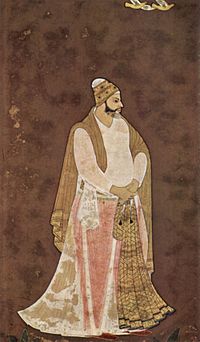







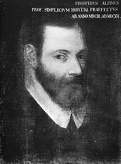
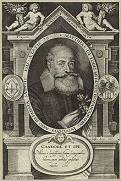
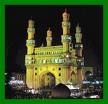


1591 On Mar. 1 Pope Gregory XIV writes to the Council of Paris, renewing Henri IV's excommunication, supporting Philip II of Spain and the French League, calling on the French to renounce him, and sending papal troops to France to depose him; Gregory dies on Oct. 16, his election being declared illegal, and on Oct. 29 Giovanni Antonio Facchinetti (Achinetti) is elected Pope (#230) Innocent IX (1519-91) on Oct 29, but he dies on Dec. 30. On Mar. 13 the Battle of Tondibi is a V for 1.5K Moroccan cavalry and 2.5K arquebusiers under Islamicized Spaniard Judar Pasha (-1606) over 40K bow-arrow-lance soldiers of the Sonhai Empire (begun 1464) under ruler (since 1588) Askia Ishaq II, becoming the first use of muskets in war in sub-Saharan Africa; after the capital of Gao is looted along with the trading centers of Timbuktu and Djenne, the Songhai Empire, the last great Sudanese empire becomes kaput. On Apr. 10 English adventurer Sir James Lancaster (1554-1618) leaves Plymouth on his first voyage to the East Indies with three ships, becoming the first English sea expedition to India; on Aug. 1 they reach Table Bay, then lose one ship on Sept. 12 off Cape Corientes - where is Krishna when you really need him? In July Elizabeth "Bess" Throckmorton (1565-1647), daughter of late diplomat Sir Nicholas Throckmorton (1515-71) and the oldest of Elizabeth I's maids of honor conceives a love child by Sir Walter Raleigh (1552-1618), and forces him to marry her in secret in the fall, while concealing her pregnancy from the queen. In Aug. Elizabeth I admits Robert Cecil to the Privy Council after spending 10 days in May with the Burghley family in Theobalds and knighting him, but ignores hints to appoint him official secy. of state? In Aug. Elizabeth I goes on a summer progress to Farnham, Petworth, Chichester, Titchfield, Portsmouth, and Southampton, returning via Basing, Odiham, and Elvetham (in Hampshire), where the Earl of Hertford stages a water pageant. In Aug. Elizabeth I, after entreaties by Henri IV sends her beau Essex with 4K men to Normandy, and he meets Henry IV in Compiegne, then lets Henry reduce Noyon while he sieges Rouen unenergetically, preferring to hold parties, parades, and hawking in enemy territory, which causes the queen's council to rebuke him, and the queen to order him to return, which he does after knighting 24 of his supporters against her wishes, which pisses her off, commenting, "His Lordship had done well to build his almshouses before he made his knights"; after he smooths things over, in a few days he returns to Rouen to join his troops, and takes Gournay, but 3K of his men die of illness or desert, and his brother is killed, and he is ordered to resign and return home again, embittered by the belief that Burghley and Cecil had poisoned the queen's mind against him. In Aug. Sir Thomas Cavendish (b. 1560) begins his 2nd expedition, accompanied by navigator John Davis, crossing the Strait of Magellan and returning to Brazil, where a battle with the Portuguese at Vitoria kills most of the crew, after which he sets off towards Saint Helena but dies off Ascension Island after writing a letter accusing Davis of being a "villain" who caused "the decay of the whole action"; the crew goes on to discover the Falkland Islands next Aug. before returning sans most of the crew. In Nov. Elizabeth I visits Sir Christopher Hatton during his sickness, feeding him "cordial broths with her own hands"; he dies soon after of kidney failure, owing her £56K, which causes her to get depressed as it is rumored that she killed him by demanding repayment; actually, she is down from facing her own mortality, scolding Lord North for calling a raised pie in a covered dish a "coffin"? On Sept. 10 vice-adm. Sir Richard Grenville (b. 1542) dies after a battle off Flores in the Azores in which his ship Revenge holds out for 12 hours against the Spanish fleet; a cyclone later sinks his ship along with 16 Spanish ships. On Sept. 25 Christian I (b. 1560) dies, and his eldest son Christian II (1583-1611) becomes elector of Saxony (until 1611); too bad, he's a boy, and this allows the many Lutheran enemies of Calvinist councillor (since 1586) Nikolaus Krell to get him thrown out of office and imprisoned, then finally tried and executed in 1601 before he attains the age of majority. Ivan IV's son Dmitri is assassinated by orders of Boris Godunov, spawning four pretenders (false Dmitris). Qutb Shahi sultan #5 (1580-1611) Muhammad Quli Qutb Shah (1565-1612) establishes the city of Hyderabad (originally Baghnagar = city of gardens) on the S bank of the Musi River in SC India (modern-day pop. 6.8M/7.7M) to extend the fortified capital of Golconda, named after Quli Qutb's dancing girl babe Bhagmati, who converted to Islam under the name Hyder Mahal; it is laid out in a grid plan; it goes on to become known as "the City of Pearls" as well as a diamond trading center; in 1687 it is annexed by the Mughals. Angel shark sword hilts makes me your man? Toyotomi Hideyoshi (1536-98) issues the Edict on Changing Status, forbidding samurai from farming, and farmers from owning weapons; his infant son Tsurumatsu dies in Nov., leaving him without an heir. Witch-Hunt Hysteria grips Scotland, and five witches, incl. Agnes Sampsoune and Gellie Duncan are burned, followed by 17 more in 1597, and ultimately 17K before they run out of poop. Edmund Spenser (1552-99) becomes the first unofficial poet laureate of England. (St.) Aloysius Gonzaga (1568-91), who renounced his right to the marquisate of Castiglione, Italy in 1585 and became a Jesuit devotes himself to caring for plague victims in Rome, and catches it himself and dies, becoming a saint in 1726, the patron saint of young Roman Catholic students - low-rise jeans aren't ruling the world? Sir Martin Frobisher marries for a 2nd time and settles in Yorkshire, but soon tires of country life. Peter Paul Rubens (b. 1577) of Westphalia begins his apprenticeship; next year he studies under Adam van Noort in Amsterdam, followed by Otto van Veen in 1596. A law is passed closing London theaters on Thursdays so that bull and bear baiting can be attended and bets taken. Architecture: Char Minar (Four Minarets) is constructed at the center of the new city of Hyderabad, India, with two roads intersecting and passing through its archways. The Rialto Bridge over the Grand Canal in Venice is finished (begun 1587). Science: Italian scientist Galileo Galilei (1564-1642) drops a 1 lb. and a 100 lb. weight from the Leaning Tower of Pisa simultaneously to prove a point in physics about bodies falling at the same speed regardless of mass, refuting the know-it-all Aristotelians. Thomas Harriot discovers that snowflakes are 6-sided (hexagonal). Nonfiction: Prospero Alpini (1553-1617), De Medicina Egyptiorum (Venice); the first account of the coffee plant pub. in Europe, describing a coffee tree he saw in the garden of the capt. of the Janissaries in Constantinople; follows next year with De Plantis Aegypti liber, introducing several new plant species to Europe, incl Abrus, Abelmoschus, Lablab, Melochia, Baobab, and Sesban. Giordano Bruno (1548-1600), De Imaginum, Signorum, Et Idearum Compositione (On the Composition of Signs, Images and Ideas) (Frankfurt); De Triplici Minimo et Mensura; De Monade Numero et Figura; De Innumerabilibus, Immenso et Infigurabili. John Calvin (1509-64) (tr.), The Geneva Bible; pub. by Cambridge U. Press with marginal notes that make it the most popular English trans. for the next cent.; James I of England is so enraged by the notes to Exodus 1:19 that he later orders his own noteless King James Version to be developed. Tommaso Campanella (1568-1639), Philosophia Sensibus Demonstrata (Philosophy Demonstrated by the Senses); his first work. Giles Fletcher the Elder (1548-1611), Of the Russe Common Wealth, Or, Maner of Gouernement of the Russe Emperour (Commonly Called the Emperour of Moskouia), with the Manners, and Fashions of the People of That Countrey. John Florio (1553-1625), Second Fruits, to be Gathered of Twelve Trees, of Divers but Delightsome Tastest to the Tongues of Italian and English Men; Garden of Recreation, Yielding Six Thousand Italian Proverbs. Matthias de Lobel (1538-1616), Icones stirpium, seu, Plantarum tam exoticarum, quam indigenarum :in gratiam rei herbariae studiosorum in duas partes digestae : cum septem linguarum indicibus, ad diuersarum nationum vsum (Images of plants, both exotic and native, for students of botany, arranged in two parts: with indices in seven languages for the use of different nationalities); the first attempt to classifly plants according to their natural affinities rather than medical uses. Franciscus Patricius (1529-97), Nova de Universis Philosophia (New Philosophy of Ideas) (Basel); goes back to the Ionians and Presocratics to portray God as "First Light", which is later adopted by Galileo to mathematize physics. Francois Viete (Franciscus Vieta) (1540-1603), In Artem Analyticem (Analyticam) Isagoge; first book to use letters for algebraic quantities (consonants for constants, vowels for variables); invents Analytical Trigonometry. Art: Giuseppe Arcimboldo (1527-93), Flora. El Greco (1541-1614), Coronation of the Virgin. Cornelis Van Haarlem (1562-1638), The Massacre of the Innocents II; more people, more action? Plays: Anon., The Troublesome Raigne of King John of England; used by William Shakespeare for his play "King John"; "Let England live but true within it selfe,/ And all the world can never wrong her State./ If Englands Peeres and people joyne in one,/ Nor Pope, nor Fraunce, nor Spaine can doo them wrong." Robert Green (1558-92), Philomela the Lady Fitz-waters Nightingale (romance). John Lyly (1553-1606), Endymion, the Man in the Moon (allegorical comedy). Christopher Marlowe (1564-93), Edward II - takes one to know one? Sir Philip Sidney (1554-86), Astrophel and Stella (posth.); 108 sonnets and 11 songs; inspired by Penelope Devereux, daughter of Lord Essex. William Shakespeare (1564-1616), Henry VI Pt. 1; his weakest play?; Titus Andronicus (1591-2) (tragedy) (Titus has 687 lines, 14th most); Roman Gen. Titus Andronicus vs. Gothic Queen Tamora; Titus' sons Lucius, Quintus, Martius, and Mutius; Tamora's sons Demetrius, Chiron, and Alarbus; Tamora's lover Aaron the Moor. Poetry: Edmund Spenser (1552-99), Complaints. Births: English gen. Robert Devereux, 3rd Earl of Essex (d. 1646) on Jan. 11 in London; son of Robert Devereux, 2nd Earl of Essex (1565-1601). Spanish Tenebrist painter Jusepe (Giuseppe) (Jose) de Ribera (Lo Spagnoletto) (Sp. "The Little Spaniard") (d. 1652) on Jan. 12 in Jatiba (near Valencia); pupil of Michelangelo da Caravaggio (1571-1610). French mathematician Girard Desargues (d. 1661) on Feb. 21. German Jesuit poet Friedrich von Spee (Spee von Langenfeld) (d. 1635) on Feb. 25 in Kaiserswerth. Am. New England settler Thomas Cornell Sr. (d. 1655) (b. 1592?) on Mar. 24 in Saffron Walden, Essex, England; emigrates to Boston in 1638; ancestor of Ezra Cornell, William Ellery, Ezekiel Cornell, Lizzie Borden, Elizabeth Monroe, Frances Folsom Cleveland, Amelia Earhart, John Kerry, Bill Gates, Jimmy Carter, and Richard Nixon. Am. religious leader (Rhode Island founder) Anne Hutchinson (nee Marbury) (d. 1643) on July 20 in Alford, England. French nun (St.) Louise de Marillac (Le Gras) (d. 1660) on Aug. 12 in Le Meux, Oise. English #1 ("gather ye rosebuds while you may") Cavalier poet (vicar of Dean Prior in Devonshire) Robert Herrick (d. 1674) on Aug. 24 in Cheapside, London; educated at Westminster School, and St. John's College, Cambridge U.; his portrait bears a striking resemblance to Beatle Ringo Starr (1940-)? Ottoman sultan #15 (1617-18, 1622-3) "Mad" Mustafa I (d. 1639) in Manisa Palace, Constantinople; younger brother of Ahmed I (1590-1617). German Roman Catholic missionary-astronomer Johann Adam Schall von Bell (d. 1666). Italian Baroque painter Guercino (Giovanni Francesco Barbieri) (d. 1666). English royalist Thomas Wentworth, Earl of Cleveland (d. 1667); not to be confused with his relative Thomas Wentworth, 1st earl of Stafford (1593-1641). Deaths: Italian lutenist and musical theorist Vincenzo Galilei (b. 1520) on July 2; father of Galileo Galilei. Spanish gov. of Puerto Rico (1579) Juan Ponce de Leon II (b. 1524) in San Juan, Puerto Rico. Spanish mystic poet Luis de Leon (b. 1527). Italian painter Vincenzo Campi (b. 1536). Spanish Jesuit scholar Francisco Ribera (b. 1537). Swiss engraver Jost Amman (b. 1539). English lord chancellor Sir Christopher Hatton (b. 1540) on Nov. 20 in London. Spanish mystic priest St. John of the Cross (Juan de la Cruz) (b. 1542) on Dec. 14 in Ubeda, Andalusia; leaves Ascent of Mount Carmel, Dark Night of the Soul, and A Spiritual Canticle of the Soul; canonized 1726. English vice-adm. Sir Richard Grenville (b. 1542) on Sept. 10 off Flores, Azores (KIA); Alfred, Lord Tennyson commemorates him in the poem The Revenge. German elector of Saxony (1586-91) Christian I (b. 1560) on Sept. 25 in Dresden. Spanish Jesuit priest Aloysius Gonzaga (b. 1568).










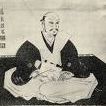


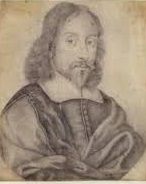
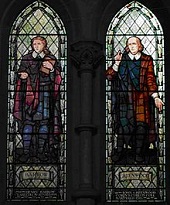

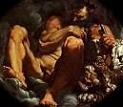
1592 A cent. after Columbus, smallpox and other Euro diseases have wiped out 90% of the aboriginal pop. of the New World; the pop. of Mexico has dropped from 30M to 3M, Peru from 8M to 1M? The pope who burns Bruno ain't so clement after all? On Jan. 30 Ippolito Aldobrandini is elected Pope (#231) Clement VIII (1536-1605), and the papacy settles down for a good decade of Texas BBQing as this deeply pious dude pushes the Tridentine measures for the reform of the clergy, builds up Rome's charitable institutions, and appoints Florence-born (St.) Philip Neri (1515-95) (founder of the Congregation of the Oratory) as cardinal, along with church historian Caesar Baronius (Cesare Baronio) (1538-1607); too bad, on May 22 after having made the mistake of returning to Italy (which he left in 1576 as they were about to prosecute him for heresy, spending most of his time in Paris and London, then ending up at the Frankfurt Book Fair in Germany last year, where Venetian patrician Giovanni Mocenigo talked him into it in hopes of becoming prof. of math. at the U. of Padua, which job is given to Galileo Galilei instead, after which Mocenigo gets into an argument with him and turns him into the Inquisition), Italian philosopher Giordano Bruno (1548-1600) is arrested by the Vatican for his scientific beliefs in the existence of multiple worlds, his belief in the transmigration of the human soul into animals, along with his heretical denial of the Trinity, the virginity of Mary et al., and after arriving in Rome next Feb. he spends seven years imprisoned in the Tower of Nona while defending himself from inquisitor Cardinal Robert Bellarmine (1542-1621), who keeps throwing mud at him until it sticks - the first Trekkie? In Jan. Essex returns to England from France, and loses an appointment to the chancellorship of Oxford U. to Cecil's man Lord Buckhurst, causing him to aim instead for high political office with the help of Sir Francis Bacon and his brother Anthony Bacon, agent of Sir Francis Walsingham and friend of Protestant French king Henri IV. In Jan. Toyotomi Hideyoshi (1537-98) adopts his nephew Hidetsugu, then retires as regent (tampaku) on Feb. 11, assuming the title of taiko (retired regent); on May 7 the naval Battle of Okpo sees 24 Korean panokson (roofed) ships plus 30 support ships under adm. Ri Sun Shin (Yi Sun-sin) (1545-98) surprise 50 Japanese ships anchored in Okpo Harbor while its troops loot the city, and force a surrender, then on May 8 do ditto at Chokjinpo Harbor; on May 29 (15?) the naval Battle of Sacheon sees adm. Ri Sun Shi first use his technological breakthrough turtle ship (kobukson) (a ramming ship with iron plating or spikes on the deck, which he designed and has constructed on Chon Do Island), attacking 70 Japanese ships in Sacheon with 25 regular ships plus his new secret veapon ship; a Japanese bullet punctures the skin of Ri's left arm in one of the big history what-ifs?; on May 23 the Japanese invade Busan (Pusan) in SE Korea with 7K men under Christian daimyo Konishi Yukinaga (1555-1600) with the aim of conquering the Asian mainland, and the cover story of obtaining safe passage to China, starting the Imjin (Seven-Year) War (ends Dec. 24, 1598); the initial force is mistaken by the Koreans for a trading mission, and has a cake walk, killing 8.5K-30K, then taking Dongnae on May 25 after killing another 3K; eventually 200K men under Kato Kiyomasa (1561-1611) et al. arrive, with the Japanese troops being armed with Euro arquebuses, while the Koreans only have archers; Confucian scholar Ryu Seong-ryong (1542-1607) (you sung wrong?) is appointed Korean PM, in charge of the military, and becomes a big backer of adm. Ri Sun Shin, who on July 8 uses turtle ships to thwart the invasion at the naval Battle of Hansan Island, capturing 47 Japanese ships and destroying 12, and capturing 8K POWs, after which the Korean navy scores continual Vs to undermine Japanese successes on land, with Ri winning all 22 of his naval battles; on Sept. 1 the naval Battle of Busan sees Ri's 60 turtle ships defeat 470 Japanese ships using long-range cannon, while losing only six dead and 25 injured, after which Ri stops the battle to leave the Japanese with some ships to evacuate Korea with; the Japanese introduce tobacco smoking to Korea during their invasion - good for lockjaw? In Feb. the English expedition of Sir James Lancaster retrofits in Zanzibar, then rounds Cape Comorin in mid-May, and reaches the Malay Peninsula in June, capturing every ship they encounter. On Apr. 16 Rouen, France is captured after a mini-siege by Duke Alessandro Farnese of Parma, who is wounded in the hand, which, combined with failing health causes him to put his son Ranuccio I Farnese (1569-1622) in charge of his troops, after which he returns to Flanders, gets removed as gov. of the Spanish Netherlands by a jealous Spanish court, and dies in Arras on Dec. 3, leaving his son the dukedom of Parma and Pacienza. On May 31 Sir Walter Raleigh's "brutish offense" of impregnating Bess Throckmorton (who gave birth to a son in Mar.) is found out by the queen, who becomes "most fiercely incensed"; meanwhile he is out in Panama fighting the Spanish, but is "speedily sent for and brought back" to face charges of seducing a noble virgin committed to the queen's care, and marrying without royal consent; in June Raleigh and Bess are sent to the Tower (separate apts.); on July 1 he attempts suicide after being refused permission by the Tower Lt. Sir George Carew to row out on the Thames and see Elizabeth I off on her summer progress; he is released in Aug. after a Spanish treasure ship carrying £800K worth of jewels is brought into Dartmouth and the crowd won't let the queen's rep. the Earl of Cumberland claim her share, and she lets him do it?; he gives her the loot, and is banned from court, and made to live "like a fish cast on dry land" for five years at Sherbourne Castle in Devon (given to him by the queen in Jan. 1591), joined by his wife Bess in Dec., whose child dies anyway, but they are too proud to beg pardon of queeny. In the summer Elizabeth I goes on progress again in order to escape the plague in London (15K die), travelling west to Sudeley Castle in Gloucestershire, then to Bath, where she visits Sir John Harington, and he presents her with a fancy bound copy of his new translation of "Orlando Furioso", and she forgives him for his earlier smut; in Sept. she visits Oxford, then winds up in Roycote to stay with her old friends Lord and Lady Norris. In Aug. English Capt. John Davis (Davys) (1543-1605) discovers the Davis, er, Falkland (Malvinas) Islands, which are populated and claimed by Argentinians in the 1820s - the longer after Columbus, the smaller they get? On Nov. 17 king (since Sept. 30, 1568) Johan III Vasa (b. 1537) dies, and Jesuit-educated Counter-Reformation Polish-Lithuanian king (1587-1632) Sigismund III Vasa (Zygmunt III Waza) (1566-1632) of Poland becomes king of Sweden (until July 24, 1559), going on to desperately try to unite the two countries under Roman Catholicism; HRE Rudolf II makes peace with Poland. - no matter how many have to die? Akbar the Great takes Sind. The Portuguese settle at Mombasa, Kenya on the E coast of Africa, and recognize the sultan of the coastal town of Malindi, who just captured it and moved there, moving their main base to Mombasa, after which Malindi goes feral. The Mac Dynasty in Vietnam is ended, with the Trinh and Nguyen families installing puppet Le Dynasty kings. Juan de Fuca (-1601) (a Greek sailing under the Spanish flag) discovers the Juan de Fuca Strait on the W coast of North Am. separating Vancouver Island from the Olympic Peninsula, along with British Columbia. Sir Martin Frobisher commands a fleet outfitted by Sir Walter Raleigh to harry Spanish merchant ships bringing gold from Panama. Shah Abbas I transfers the Persian Safawid capital from Ghazvin (Qazvin) (Casbin) (100 mi. NW of Tehran) to Isfahan (Ispahan) (Sepahan) (Esfahan) (Hispahan) in C Iran, turning into one of the most beautiful cities in the world. The English Parliament passes the Religion Act of 1592, providing "for the punishment of persons obstinately refusing to come to [an Anglican] church", giving them 3 mo. to comply or be exiled from England forever; it is targeted at the Congregationalist Church (originally known as Separatists, Independents, or Brownists), founded after a "Theory of Union" pub. in 1582 by Robert Browne (1550-1633), and led by Henry Barrow (Barrowe) (1550-93) and Separatist leader John Greenwood (-1593), who are later hanged at Tyburn after Browne chickens out and becomes an Anglican priest to save his hide; the basic principle is that each congregation is indendent and autonomous, and in particular isn't headed by a *!?*! monarch; the 1620 Mayflower passengers are Brownists, causing the Pilgrims to be originally known as the Brownist Emigrants; in 1661 John Bunyan is convicted of violating it. The Spanish galleon San Clemente brings 50kg of tobacco seed to the Philippines. The ruins of Pompeii are discovered by Roman papal architect Domenico Fontana, who is dismissed by Pope Clement VIII for suspected embezzlement of public funds, causing him to work for the viceroy of the Kingdom of the Two Sicilies. Hans von Aachen (1552-1615) of Cologne becomes official court painter of HRE Rudolph II. Trinity College (College of the Holy and Undivided Trinity) in Dublin, Ireland is founded by Elizabeth I for Anglicans only, with the intention of building a univ. around it, which never happens, causing it to also be known as the U. of Dublin; in 1793 Roman Catholics and Dissenters are admitted, but under restrictions that aren't lifted until 1873; in 1871-1970 the Roman Catholic Church prohibits members from attending without permission; women are admitted in Jan. 1904. William Shakespeare begins his Lyrical Age (1592-6); he is mentioned as an actor for the first time by Robert Greene (1558-92), who calls him an "upstart crow, beautified with our feathers". Inventions: Korean adm. Ri Sun Shi invents the iron-clad turtle war ship (kobukson), a ramming ship with iron plating or spikes on the deck. Galileo Galilei invents the thermoscope, the first primitive gas (air-based) thermometer. Science: Korean astronomers record a nova in the constellation Cetus, which is visible for 15 mo. David Fabricius discovers Mira, the first known variable star. Nonfiction: Sethus Calvisius (1556-1615), Melodiae Condendae Ratio (Erfurt). Robert Greene (1558-92), A Quip for an Upstart Courtier; Greene's Groates-Worth of Wit Bought with a Million of Repentence (posth.); an autobio., ed. by dramatist Henry Chettle (1560-1607), containing an alleged swipe on new kid on the block William Shakespeare, alluding to the line "O tiger's heart wrapped in a woman's hide" in "Henry VI, Part 3", with the soundbyte: "...for there is an upstart Crow, beautified with our feathers, that with his Tygers hart wrapt in a Players hyde, supposes he is as well able to bombast out a blanke verse as the best of you: and being an absolute Johannes fac totum, is in his owne conceit the onely Shake-scene in a countrey". Galileo Galilei (1564-1642), Della Scienza Mechanica (On Mechanical Knowledge). Philip Henslowe (1550-1616), Diary (1592-1603). Johannes Kepler (1571-1630), De Admirabili Proportione Coelestium Orbium (Mysterium Cosmographicum); claims that the spaces between the planetary orbits from Saturn to Mercury correspond to each of the five Platonic bodies (regular solids): cube, tetrahedron, octahedron, dodecahedron, icosahedron; impresses Tycho Brahe (1546-1601), causing him to invite him to become his assistant; meanwhile he goes on to dump this theory for elliptical orbits. Giovanni Antonio Magini (1555-1617), De Planis Triangulis; describes the use of quadrants in surveying and astronomy; Tabula Tetragonica. Juan de Mariana (1536-1624), Historiae de Rebus Hispaniae (20 vols) (Toledo); the history of the Iberian Peninsula since 1243, becoming a std. work; 10 more vols. pub. in 1605; it incl. De Rege et Regis Institutione (3 vols.) (1598), written at the request of Philip II and dedicated to his son Philip III, concluding that it is lawful for an individual or group to overthrow and kill a monarch who is a tyrant, the definition incl. violating the laws of religion, imposing taxes without consent, or preventing a dem. parliament from meeting, which makes it easier to point the finger at all Jesuits after the 1610 assassination of Henri IV of France?; some of his vols. get him imprisoned by the Inquisition, during which time they find another of his writings criticising the Jesuits themselves, later used by Charles III to ban them all from Spain. Thomas Sanchez, De Sacramento Matrimonii. Lodovico Zacconi (1555-1627), Prattica di Musica (Venice). Music: Claudio Monteverdi (1567-1643), Third Book of Madrigals. Lodovico Zacconi (1555-1627), Prattica di Musica. Art: Agostino Carracci (1557-1602), Pluto. Marcus Gheeraerts the Younger (1561-1636), Raleigh's Disgrace; shows the queen in the background with her back turned to him; Ditchley Queen Elizabeth I; commissioned by her former champion (1559-90) Sir Henry Lee of Ditchley (1533-1611), who lavishly feted her at in Ditchley near Oxford and shows her standing on a map of England with her feet on Oxfordshire. Freiherr Augustin von Moersperg, The Pied Piper of Hamelin; earliest known picture of the famous rat killer. Tintoretto (1518-94), The Last Supper (1592-4). Plays: John Lyly (1553-1606), Gallathea; Midas. Christopher Marlowe (1564-93), The Jew of Malta (The Famous Tragedy of the Rich Jew of Malta) (blank verse tragedy); written in 1589-90; based on Machiavelli; he gets a barbarous revenge against the city authorities; puts him on the top of the heap alongside Shakespeare? Thomas Nashe (1567-1601), Pierce Pennilesse His Supplication to the Devil (satire); Summers Last Will and Testament (fall); "Adieu, farewell earths blisse,/ This world uncertain is/ Fond are life lustful joyes,/ Death proves them all but toyes,/ None from his darts can flye;/ I am sick, I must dye:/ Lord, have mercy on us." William Shakespeare (1564-1616), Richard III (history) (Richard III has 1,124 lines, 3rd most); Edward IV of England (who usurped the throne from Henry VI), his brother George, Duke of Clarence, his other brother Richard, Duke of Gloucester (Richard III), his wife Elizabeth, Richard's ally the Duke of Buckingham, Lady Anne (widow of Edward, prince of Wales) (later Richard's wife), Henry VI's widow Margaret, the Earl of Richmond (Henry VII); "Now is the winter of our discontent/ Made glorious summer by this sun of York" (1.1.1); "No beast so fierce but knows some touch of pity" (1.2.71); "Talkers are no good doers" (1.3.351); "Things sweet to taste prove in digestion sour" (1.3); "For God's sake, let us sit upon the ground/ And tell sad stories of the death of kings"; (3.2); "Not all the water in the rough rude sea/ Can wash the balm from an anointed King" (3.2); "Discharge my followers; let them hence away,/ From Richard's night to Bolingbrooke's fair day" (3.2); "A horse! a horse! my kingdom for a horse!" (5.4.7); "Keep time! How sour sweet music is when time is broke and no proportion kept!/ So it is in the music of men's lives./ I wasted time, and now doth time waste me;/ For now hath time made me his numb'ring clock;/ My thoughts are minutes, and with sighs they jar/ Their watches on unto mine eyes, the outward watch,/ Whereto my finger, like a dial's point,/ Is pointing still, in cleansing them from tears”; (5.5.42-54); "No matter where; of comfort no man speak:/ Let's talk of graves, of worms, and epitaphs;/ Make dust our paper and with rainy eyes/ Write sorrow on the bosom of the earth"; "For sorrow ends not, when it seemeth done"; "No deeper wrinkles yet?/ Hath sorrow struck/ So many blows upon this face of mine/ And made no deeper wounds?'; "I hate the murderer, love him murdered"; "More are men's ends mark'd than their lives before:/ The setting sun, and music at the close,/ As the last taste of sweets, is sweetest last,/ Writ in remembrance more than things long past"; "Mine honor is my life; both grow in one./ Take honor from me, and my life is done"; "O that I were a mockery king of snow/ Standing before the sun of Bolingbroke/ To melt myself away in water drops!'; "Woe, destruction, ruin, and decay; the worst is death and death will have his day"; "This royal throne of kings, this sceptered isle/ This earth of majesty, this seat of Mars./ This other Eden, demi-paradise./ This fortress built by Nature for herself/ Against infection in the hand of war,/ This happy breed of men, this little world,/ This precious stone in the silver sea,/ Which serves it in the office of a wall/ Or as a moat defensive to a house,/ Against the envy of less happier lands, - / This blessed plot, this earth, this realm, this England." William Shakespeare (1564-1616) and Thomas Kyd (1558-94), Edward III; which is filled with gibes against Scotland and its people; pub. anon. in 1596; not included in the First Folio, which was pub. during the reign of Scottish king James I. Poetry: Nicholas Breton (1545-1626), The Pilgrimage to Paradise. Samuel Daniel (1562-1619), The Complaynt of Rosamond (soliloquy) (debut); Sonnets to Delia; written in Italy for his babe who lives on the banks of the Avon River. Christopher Marlowe (1564-93), Hero and Leander - night and day you are the one? William Shakespeare (1564-1616), Venus and Adonis; dedicated to his handsome bi patron Henry Wriothesley, 3rd Earl of Southampton (1573-1624); recorded in the Stationers' Register on Apr. 18, 1593; "Bid me discourse, I will enchant thine ear" (line 145); "Graze on my lips, and if those hills be dry,/ Stray lower, where the pleasant fountains lie" (lines 238-9); "Her lips are conquerors, his lips obey" (line 548); "The text is old, the orator too green" (line 806). Births: Indian Mughal emperor #5 (1628-58) (Muslim) (builder of the Taj Mahal) Shah Jahan (Jehan) (Pers. "King of the World") (d. 1666) on Jan. 5 in Umerkot, Sind; son of Jahangir (1569-1627); grandson of Akbar the Great (1542-1605); father of Aurangzeb (1618-1707). Czech Moravian educational reformer ("Father of Modern Education") ("Teacher of Nations") Johann (John) (Jan) Amos Comenius (Komensky) (d. 1670) on Mar. 28 in Komna; champion of universal education; first to teach classical languages by using parallel passages from modern languages. English courtier (lover of James I?) George Villiers, 1st Duke of Buckingham (d. 1628) (pr. like Villers) on Aug. 28 in Brooksby, Leicestershire; father of George Villiers, 2nd duke of Buckingham (1628-87); created duke in 1623. Italian Roman Catholic archbishop Giovanni Battista Rinuccini (d. 1653) on Sept. 15 in Rome; educated at the U. of Bologna, and U. of Perugia. Swedish field marshal Count Gustav Horn, Count of Pori (d. 1657) on Oct. 22 in Orbyhus Castle, Uppland. English polymath playwright royalist soldier William Cavendish, 1st Duke of Newcastle-upon-Tyne (d. 1676) on Dec. 6 in Handsworth, Yorkshire; created duke in 1665; student of Thomas Hobbes; husband (1645-) of Mary Cavendish, duchess of Newcastle-upon-Tyne (1623-73). English politician (friend of the Prince of Wales) John Harington, 2nd Baron Harington of Exton (d. 1614). British Am. colonist ("the first Yankee") David Thomson (d. 1628) in Corstorphine, Scotland; first English settler of N.H.; namesake of Thompson Island in Boston Harbor. English boat-rocking political leader Sir John Eliot (d. 1632) on Apr. 11 in Cuddenbeak, Port Eliot, Cornwall; educated at Exeter College, Oxford U.; knighted in 1618. French explorer Etienne Brule (Brulé) (d. 1633) in Champigny (near Paris); first Euro to explore beyond the St. Lawrence River into Canada. French Baroque "Les Grandes Miseres" etcher-printmaker Jacques Callot (d. 1635) in Nancy, Lorraine; the photojournalist of the 17th cent.? Chinese Qin emperor #2 (1626-43) Abahai (Hong or Huang Taiji) (d. 1643); 2nd son of Nurhachi (1559-1626). English super-popular religious poet Francis Quarles (d. 1644) in May near Romford. French atomist philosopher-priest Pierre Gassendi (d. 1655). English poet and bishop of Chichester Henry King (d. 1669) in Worminghall, Buckinghamshire in Jan.; brother of John King. educated at Christ Church, Oxford U. Am. Harvard College pres. (1654-72) Charles Chauncy (d. 1672) in Yardleybury, Hertfordshire, England; educated at Cambridge U.; emigrates to the Plymouth, Mass. in 1638. Dutch dir.-gen. #7 (last) of New Netherland (1647-64) Peter (Pieter) Stuyvesant (d. 1672) (1602?) (1612?) in Peperga, S Friesland. Am. fisherman (founder of Salem, Mass. in 1626) Roger Conant (d. 1679) in Devonshire, England; emigrates to Mass. in 1623. Deaths: Fleming ambassador Ogier Ghiselin de Busbecq (d. 1520) on Oct. 28 in St. Germain; leaves The Turkish Letters (pub. 1744 in London). French marshal Armand de Gontaut, baron de Biron (b. 1524) on July 26 in Epernay (KIA). French essayist Michel de Montaigne (b. 1533) on Sept. 13 in Bordeaux: "Nothing is so firmly believed as that which we least know"; "The thing I fear most is fear"; "Things are not bad in themselves, but our cowardice makes them so"; "I speak the truth, not so much as I would, but as much as I dare; and I dare a little more, as I grow older"; "All the opinions in the world point out that pleasure is our aim"; "Live as long as you please, you will strike nothing off the time you will have to spend dead"; "Whatever can be done another day can be done today"; "I want death to find me planting my cabbages." German landgrave William IV of Hesse-Cassel (b. 1532) on Aug. 25. Swedish king (1568-92) Johan (John) III Vasa (b. 1537) on Nov. 17 in Stockholm Castle. Spanish aristocrat Ana de Mendoza, princess of Eboli (b. 1540) on Feb. 2 in Pastrana, Guadalajara. German prince John Casimir, Count Palatinate of Simmern (b. 1543) on Jan. 16 in Heidelberg. Italian duke of Parma and Piacenza #3 (1586-92) Alessandro Farnese (b. 1545) on Dec. 3 in Arras. Italian feminist writer Moderata Fonte (b. 1555). English poet Thomas Watson on Sept. 26 in London. English playwright and pamphleteer Robert Greene (b. 1558) on Sept. 3; dies after a "banquet of Rhenish wine and pickled herring". English explorer Sir Thomas Cavendish (b. 1560) in May off Ascension Island.





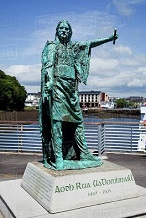


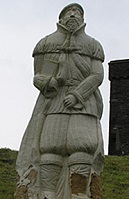

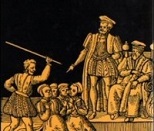
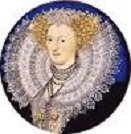
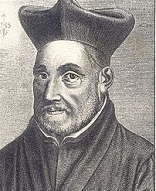

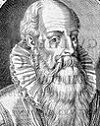
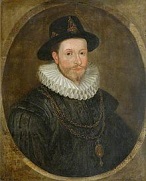


1593 On Jan. 8 the Siege of Pyongyang sees 36K Chinese Ming forces of Song Yingchang (1536-1606) under brothers Li Rusong (1549-98) and Li Rubo (1553-1619) cross the Yalu River and hook up with 4K Korean (Joseon) forces under chief minister Yu Seong-ryong (Songnyong) (1542-1607), then the 43K combined forces take Pyongyang from 42K Japanese forces under Christian gen. Konishi Yukinaga (1555-1600), with 16K Japanese vs. 800 allied casualties. On Feb. 6 French Jesuit (St.) James Sales (b. 1556) is shot in the back in the city of Aubenas in the Cevennes region of France by Calvinists after an inquisition the previous day, where he refuses to denounce the real presence in the Eucharist and allegedly beats them in a theology debate; on Feb. 6 lay brother (St.) William Saultemouche (b. 1555) volunteers to die with him, and is stabbed to death; the Protestants are back atcha, when on May 29 Welsh Puritan John Penry (b. 1559) of Breconshire, who pissed-off the Anglican bishops by preaching against their lack of education and their living off church lands they don't live on is hanged in St. Thomas-a-Watering for sedition for writing a rough draft of an unpub. petition to Elizabeth I, becoming a Puritan martyr (Wales' most famous), leaving The Notebook of John Penry. On Feb. 10 Charles de Guise convenes an Estates Generaux in Paris in hopes of electing himself to the French throne in place of pretender Henry IV (former Henry III of Navarre). On Feb. 12 the Battle of Haengju sees 2.3K Koreans under army CIC field marshal Gwon (Kwon) Yul (1537-99) repel 30K invading Japanese forces trying to storm a fortress, rolling boulders on them and giving them a taste of their technological breakthrough hwachas (anti-personnel mortars, each rocket containing 100-200 iron spikes), and finally stopping them after nine attacks; the Korean women help gather boulders while wearing "Haengju chimas", aprons to cover their sexy legs. In Feb. Elizabeth I appoints her 27-y.-o. "wild horse" Essex to the Privy Council. In Apr. Elizabeth I refuses to appoint Sir Francis Bacon to the post of atty.-gen., preferring solicitor-gen. Sir Edward Coke (1552-1634) (pr. like cook) instead, despite entreaties by Essex, because Bacon had fought against granting a subsidy to the crown by Parliament; Essex continues to pressure her all year, playing head games to see if the old dame can be dick-whipped? In Apr. Tyrone's Rebellion (Nine Years' War) begins (ends Mar. 31, 1603) when Gaelic Irish chieftain Hugh O'Neill, 2nd Earl of Tyrone (1550-1616) and his son-in-law, Tyroconnell king (since 1592) "Red" Hugh Roe O'Donnell (1572-1602) try to resist the advance of the stankin' English from the Pale to the whole island, rallying Irish septs. On May 11 the English privy council orders the arrest of all authors of "divers lewd and mutinous libels" that had been posted around London, and on May 12 dramatist Thomas Kyd (1558-94) is arrested at the Chislehurst home of Thomas Walsingham of Scadbury (1561-1630) (where he lives with Christopher Marlowe, who had been given the home to ride out the plague), and an Arian tract is found that "denies the eternal deity of Jesus Christ our Lord and Saviour", causing him to be tortured and rat out rommate Marlowe, who is arrested on May 20 to obtain his release; on May 30 after appearing before the privy council and awaiting their decision, Canterbury, Kent-born gay pedophile ("They that love not tobacco and boys are fools") and blasphemy-loving ("Christ was a bastard and his mother unchaste", "The woman of Samaria and her sister were whores and Christ porked them", "St. John the Evangelist was Christ's gay bud and that's why he always leaned in his bosom, he used him as the sinners of Sodom") poet-playwright Christopher "Kit" Marlowe (b. 1564) is killed (stabbed above the right eye) in a Deptford house brawl (after arguing over the bill) by Ingram Frizer (-1627) (a member of Walsingham's secret service, along with Marlowe?) with a dagger that he snatches from Marlowe's hand (after Marlowe snatches it from him and attacks him first?), dying theatrically with a blood-curdling scream, cursing and blaspheming; Frizer gets a royal pardon for self-defense on June 28; Kyd is ruined and soon dies bankrupt; was Marlowe meeting with agents of Sir Robert Cecil about a secret mission to Scotland concerning James VI?; was the corpse of a murdered sailor substituted for Marlowe's for the inquiry, and Marlowe faked his death, going on to be the real Shakespeare?; the murder takes place 4 mi. from the site of John Penry's execution. On June 20 Croatian Christian forces defeat the Turks at the Battle of Sisak (Sissek) on the Kulpa River, giving Sisak the European epithet "antemurale christianitatis"; Sultan Murad III's grand vizier declares war on Hapsburg HRE Rudolf II (ends 1606). In the summer unfavorable winds prevent a new Spanish fleet from sailing to invade England; Elizabeth I says, "My cause is just, and it standeth upon a sure foundation... I shall not fail, God assisting the quarrel of the righteous." In the summer London has another plague epidemic, worse than the previous year, causing London's theaters to be closed (until 1594), and the queen to stay at Windsor until Christmas, where she translates Boethius in 12 days. On July 18 Sir Francis Stewart, 5th Earl of Bothwell (1562-1612) (nephew of the earl who caused trouble for Mary, Queen of Scots) is smuggled into the bedroom of James VI at Holyrood by a conspiracy of popish nobles in an attempt to reconcile with him after challenging his authority; too bad, paranoid James believes he intended to assassinate him, and on Aug. 10 Bothwell is tried for witchcraft and acquitted after 24 days in prison; on Oct. 29 the Trial of the Popish Nobles begins in Scotland, and they are banished and forfeited, although they later return to Scotland with James looking the other way; the main Roman Catholic earls are Crawford, Errol, Huntly, and Maxwell, who control large areas in the Highlands and west; meanwhile Elizabeth I promulgates an Act Against Papists (Popish Recusants), outlawing Puritan assemblies and activities in England. On July 25 after hearing a Mass at St. Denis, French king (since 1589) Henry (Henri) IV (1533-1610) (who temporarily abjured Calvinism in 1572 to save himself after the St. Bartholomew's Day Massacre) announces his reconversion from Calvinism to Roman Catholicism as part of an attempt to secure his crown, allegedly announcing "Paris is well worth a Mass" after ignoring the urgent exhortations of Protestant leader Theodore Beza; Elizabeth I is horrified, writing to him: "Ah, what griefs, what regret, what groanings I feel in my soul at the sound of such news"; when he reissues his edicts of religious tolerance she continues to support him against Spain; meanwhile Jean de Beaumanoir, Marquis de Lavardin (1551-1614), who switched from Protestant to Catholic way back in 1572 after the St. Bartholomew's Day Massacre of 1572 (in which his daddy was killed), then fought against Henri III, switches sides again, and is made a marshal of France and gov. of Maine. On July 29 the Long (Thirteen Years') War (ends Nov. 11, 1606) between the Hapsburgs and the Ottomans begins when the Ottoman army under Albanian-born Sinan Pasha (1506-96) invades Royal Hungary (modern-day Slovakia), after which the war spreads to Transdanubia, Croatia, and S Romania;l Pope Clement VIII is instrumental in setting up an alliance of Christian nations to fight the infidel Muslim Ottoman Empire. In July famous female Irish pirate Grace (Granuaile) (Grainne) O'Malley (1530-1603) sneaks into London and has an audience with Elizabeth II, talking her into releasing her son Theobald and other prisoners held by the English; when she sneezes and is handed a handkerchief, she blows her nose then throws it into the fireplace, pissing-off the queen (who told her it is a gift and she has to keep it), by implying that the Irish are cleaner than the English and never put a soiled one in their pocket? In Sept. turban-wearing Michael the Brave (1558-1601) is created prince of Wallachia by the Ottoman sultan, then flops on him, joining the Christian alliance of Euro powers, signing treaties with Sigismund (Zsigmond) Bathory (1572-1613) of Transylvania and Aron Tiranul ("the Tyrant") of Moldavia, and attacking citadels around the Danube Valley. On Dec. 6 the long-standing feud between the Maxwells and the Johnstones in the Scottish West March is decided in the Johnstones' favor at the Battle of Dryfe Sands, where the Lockerbie Licks (downward sword strokes causing hideous facial disfigurement) are introduced by the winners, the Maxwells losing 700 out of 3K men. Hideyoshi's invasion of Korea fails as the country refuses passage of his troops to invade China; Hideyoshi's son and heir Hideyori (d. 1615) is born. Sir John Maitland of Thirlestan is deposed as Scottish chancellor after Queen Anne gets him dumped, causing James VI to rule on his own for several years. The Uppsala Synod forces Sigismund IIII Vasa to recognize that Sweden is a Protestant state. The first Marrano (Sp. "swine") (Portuguese Jew) settlement is founded in Amsterdam. Ft. Jesus on Mombasa Island is founded by Philip I of Portugal to guard the port of Mombasa, Kenya; from the air it has the shape of a man. On May 28 Sigismund III Vasa grants Magdeburg rights to the town of Tarnobrzeg (pr. tar-NOB-zek) on the E bank of the Vistula River in Lesser Poland, founded for the Tarnowski family by Stanislaw Tarnowski, constable of Sandomierz. The College of St. Omer is founded by Jesuit Father Robert Persons (Parsons) (1546-1610) in Artois, Spanish Netherlands (France); it is forced to relocate to Bruges in 1762 and Liege in 1773, settling in 1794 in Stonyhurst, England, becoming Stonyhurst College. The tulip is introduced to Holland again by Flemish physician-botanist Charles de l'Ecluse (l'Écluse) (L'Escluse) (Carolus Clusius) (1526-1609), head botanist of the U. of Holland in Leiden, and discovers the phenomenon of "tulip breaking", where a virus causes the creation of flames and feathered varieties, leading to tulipomania and Dutch tulip heads - together we can and we will make Holland tulipier? Scholar Joseph Scaliger becomes a prof. at the U. of Leiden (until 1609). Sant' Ambrogio Bank in Milan is founded. The U. of Montpellier founds Jardin des Plantes de Montpellier, become the first French botanical garden. Protestant layman George Keith, 5th Earl Marischal (1553-1623) founds Marischal College in Aberdeen, Scotland; in 1860 it is merged with the U. of Aberdeen, who leases it to the Aberdeen City Council. Prosecco sparkling white wine from NE Italy (named after a village near Trieste) is first mentioned by English traveler Fynes Moryson (Morison) (1566-1630), who claims it is a recreation of Pucinum, the wine celebrated by Pliny the Elder in his Natural History and Roman emperor Augustus' wife Livia for its medicinal qualities. Inventions: The first description of a modern abacus is pub. in China. Science: Italian scientist Galileo Galileo invents the Thermoscope, a primitive uncalibrated thermometer used as a novelty perpetual motion machine. German surgeon ("Father of German Surgery") Wilhelm Fabry of Hilden (Guilelmus Fabricius Hildanus) (1560-1634) becomes the first to recommend amputation above the gangrenous area, and to describe a windlass (twisting stick) tourniquet; his wife (1587-) Marie Colinet (1560-1640) of Geneva, Switzerland becomes his asst., improving the techniques for cesarean section, introducing the use of heat for dilating and stimulating the uterus during labor, and in 1624 becoming the first to use a magnet to remove metal from a patient's eye, although he gets the credit. Nonfiction: Andrea Cesalpino (1519-1603), Queaestionum Medicarum (2 vols.); discusses the circulation of the blood but fails to form any clear picture. Pierre Charron, Les Trois Verites. Henry Chettle (1564-1607), Kind Heart's Dream; a pamphlet apologizing for attacking Shakespeare in Greene's 1592 "Groates-worth of Wit". Cheng Da-Wei, Systematic Treatise on Arithmetic (Tong Zong); first pub. description of an abacus. Richard Harvey (1560-1630), Philadelphus, or a Defence of Brutes and the Brutans History; coins the term "anthropology" (Gr. "anthropos" + "logia" = humanity + study), becoming the first "ology". John Napier (1550-1617), A Plaine Discovery of the Whole Revelation of Saint John; the first important Scottish Biblical interpretation? Giambattista della Porta (1535-1615), De Refractione, Optices Parte; incl. an account of binocular vision. Cesare Ripa (-1622), Iconologia; handbook of symbolism in emblem books, incl. conventions of dress and appearance for figures of courage, virtue and wisdom in painting and plays; goes through multiple eds. in the 1600s and 1700s. The Doctrina Christiana is the first book printed in the Philippines. Art: El Greco (1541-1614), The Crucifixion; The Resurrection. Plays: George Peele (1556-96), The Chronicle of King Edward I; one of the first English historical plays, giving Shakespeare ideas. Poetry: Michael Drayton (1563-1631), Idea; the Shepheard's Garland; nine pastoral poems; Piers Gaveston; how he seduces sweet cheeks Edward III; "This Edward in the Aprill of his age,/ Whil'st yet the Crowne sate on his fathers head/ My Jove with me, his Ganimed, his page,/ Frolick as May, a lustie life we led". Giles Fletcher the Elder, Sonnets to Licia (sonnet series). Robert Henryson (fl. 1460-1500), The Testament of Cresseid (posth.); medieval-Renaissance transition poet in Dunfermline, Scotland. Mary Sidney Herbert (1561-1621), The Countesseof Pembroke's Arcadia (AKA New Arcadia); amplified vers. of her brother Philip Sidney's "Arcadia"; becomes a bestseller for 3 cents. William Shakespeare (1564-1616), The Rape of Lucrece (1593-4); about legendary Roman noblewoman Lucretia; dedicated to Henry Wriothesley, 3rd Earl of Southampton. William Shakespeare begins writing the 154 "sugred" Sonnets (pub. in 1609 without his permission) about the Dark Lady, "black as hell as dark as night"; "Then I will swear Beauty herself is black/ And all they foul that thy complexion lack" (#132); "Shall I compare thee to a summer's day?" (#18); earliest written in 1589? Thomas Watson (1557-92), The Tears of Fancie, or Love Disdained (posth.); 60 sonnets; influences Shakespeare; "Long time I fought, and fiercely waged warre, Against the God of amarous Desire: Who sets the senses mongst themselves at jarre, The harts inflaming with his lustful fire"; "Were words dissolved to sighs, sighs into teares,/ And evrie teare to torments of the mind:/ The minds distresse into those deadly feares,/ That find more death than death itself can find/ Were all the woes of all the world in one,/ Sorrow and death set downe in all their pride." Births: French "St. Joseph" painter Georges de La Tour (d. 1652) on Mar. 13 in Vic-sur-Seille. French Jesuit missionary (St.) Jean de Brebeuf (Brébeuf) (d. 1649) on Mar. 25 in Conde-sur-Vire, Normandy; uncle of poet Georges de Brebeuf (1618-61); feast day: Sept. 26/Oct. 19. English metaphysical poet-divine George Herbert (d. 1633) on Apr. 3 in Montgomery Castle, Wales; brother of Edward Herbert (1582-1648); educated at Trinity College, Cambridge U. English royal adviser (to Charles I) Sir Thomas Wentworth, 1st Earl of Stafford (d. 1641) on Apr. 13 in London; not to be confused with his relative Thomas Wentworth (1591-1667); educated at St. John's College, Cambridge U. Dutch (Flemish) "The King Drinks", "Fecundity" painter Jacob Jordaens (d. 1678) on May 19 in Antwerp; favorite pupil of Adam van Noort. Italian Baroque painter Artemisia Gentileschi (d. 1653) on July 8 in Rome; first female member of the Accademia di Arte del Disegno in Florence. English "The Compleat Angler" writer and fisherman (angler) Izaak Walton (d. 1683) on Aug. 9 in Stafford. Japanese overlord (last of the Toyotomi clan) Toyotomi Hideyori (d. 1615) on Sept. 8 in Osaka; son of Toyotomi Hideyoshi (1537-98) and Yodo-dono (niece of Oda Nobunga). Swiss engraver Matthaus (Matthäus) Merian der Altere (Matthew the Elder) (d. 1650) on Sept. 22 in Basel; father of Mattthaus Merian the Younger (1621-87). Dutch Reformed theologian Sixtinus (Sextinus) Amama (d. 1629) on Oct. 13 in Franeker, Friesland; educated at the U. of Franeker, Oxford U., and U. of Leyden; student of John Prideaux (1578-1650). English portrait painter Cornelis Janssens van Ceulen (d. 1661) on Oct. 14 in London; Dutch-Flemish parents; moves to Middleburg, Netherlands in 1643, moving to Amsterdam in 1646, then Utrecht in 1653. French diplomat Abel Servien, Marquis de Sable (Sablé) et de Boisdauphin (d. 1659) on Nov. 1 in Biviers (near Grenoble). Italian composer Paolo Agostini (d. 1629) in Vallerano. Dutch engraver-etcher Jan van de Velde (d. 1641); brother of Esaias van de Velde (1590-1630). Dutch navigator Anthony (Antonio) van Diemen (d. 1645) in Culemborg. French painter Louis Le Nain (d. 1648); brother of Antoine Le Nain (1599-1648) and Mathieu Le Nain (1607-77). Dutch navigator-explorer David Pieterszoon de Vries (d. 1655) in La Rochelle. Deaths: Japanese emperor #106 (1557-86) Ogimachi (b. 1517) on Feb. 6. Italian painter Giuseppe Arcimboldo (b. 1527) on July 11 in Milan. English lord Henry Stanley, earl of Derby (b. 1531). English MP Paul Wentworth (b. 1533). English military leader Arthur Grey, 14th baron Grey de Wilton (b. 1536) on Oct. 14. English painter John White (b. 1540). English Separatist Puritan John Barrow (b. 1550) on Apr. 6 (early a.m.); hanged for sedition along with Separatist leader John Greenwood (b. ?). Welsh Protestant martyr John Penry (b. 1559) on May 29 in St. Thomas-a-Watering (4:00 p.m.) (hanged on trumped-up sedition charges, with Canterbury Archbishop John Whitgift's signature at the top of the death warrant), becomes Welsh's most famous Protestant martyr. English playwright-poet Christopher Marlowe (b. 1564) on May 30 in Deptford, Kent (murdered); establishes blank verse in English theater, although his bombastic, blood-and-thunder plots, filled with improbabilites and impossibilities and wildly ranting dialogue are no match for Shakespeare?; leaves the poems The Passionate Shepherd to His Love (first line: "Come live with me and be my love") and Hero and Leander.









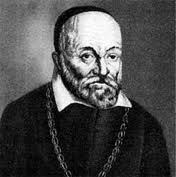
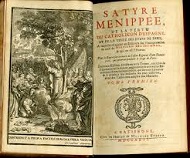


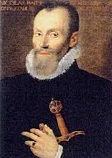
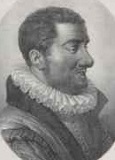
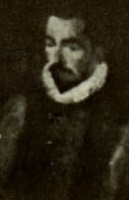
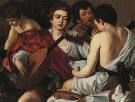
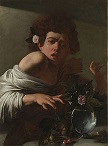
1594 Basically I find your screensaver offensive? On Jan. 1 Elizabeth's chief physician Roderigo (Ruy) (Roger) Lopez (Lopes) (b. 1517) (a Portuguese Jew who fled to England in 1559 to escape the Inquisition and converted to Christianity under the name Christian but can't fix his hook nose?) (inspiration for Shylock in Shakespeare's "The Merchant of Venice"?) is arrested for treason, railroaded to conviction by Essex and executed (hanged, drawn and quartered) on June 7 at Tyburn along with alleged accomplices Esteban Ferreira et al. after being accused of a plot to poison Portuguese pretender Don Antonio (living in London) and/or the queen; he protests his innocence to the end, with the soundbyte that "He loved the queen as he loved Jesus Christ", giving the crowd a big laugh because to them he's forever a Jew; he was probably innocent, and Essex just wanted to score one on a Christ-killer to please da queen, although it backfires when she keeps a ring that Philip II had given Lopez in 1587 which he had offered her but she had refused, wearing it until she dies? On Jan. 13 Elizabeth rebukes James VI for his leniency towards the popish nobles; on Apr. 24 popish noble Alexander Home, 6th Lord Home (Hume) (-1691) subscribes to the Confession of Faith to escape punishment and become a good homeboy, and after his buddy James I becomes king he is created duke, duke duke, duke of earl in 1605. On Feb. 27 after buying off the opposition and triumphantly entering Paris, the French House of Bourbon (branch of the House of Capet) (founded in 1268) is established with the coronation of Henri IV in Chartres, who goes on to become the most popular king in French history (until May 14 1610), while the Bourbons go on to hold thrones in Spain, Naples, Sicily, and Parma - love, love me do? On Mar. 26 Elizabeth I disappoints Essex by appointing Sir Edward Coke as atty.-gen., causing him to er, push his gay bud Sir Francis Bacon for the vacated post of solicitor-gen. for the next 18 mo. On Apr. 2 the British privy council issues a proclamation for a muster at Stirling to pursue Bad Ole' Bothwell, and on Apr. 3 he is attacked at Nidday and escapes to England, causing James VI to rebuke Elizabeth I for harboring him. On May 24 after his men mutiny in Ceylon (Sri Lanka) and he loses all but 24 of his men, Sir James Lancaster arrives back in Rye, England after failing to reach India, but his tales cause the British East India Co. to be formed in 1600, and the Portuguese trade monopoly in India is about to become kaput. In May the theaters in London reopens; the Lord Chamberlain's Men is chartered by Lord Chamberlain (1585-96) Henry Carey (1687-1743), 1st Baron Hunsdon (1526-96), son of Anne Boleyn's sister Mary and first cousin to Elizabeth I; when he dies his son George Carey, 2nd Baron Hunsdon (1547-1603) took over; Shakespeare works for the company for most of his career; besides Shakeaspeare, the company's main actor is Richard Burbage (1568-1619), son of impresario James Burbage, who plays the title role in Shakespeare's "Hamlet", "Othello", "Richard III", and "King Lear", having no problemo with the unprecedented number of lines he had to memorize; too bad, he has to play second fiddle to tall London thespian Edward Alleyn (1566-1626), who specializes in Marlowe's and Kyd's plays, and never act in one of Shakespeare's, founding the rival Admiral's Men at the Rose on the S shore. In June Sir Richard Hawkins (1562-1622), son of Sir John Hawkins is captured in San Mateo Bay after plundering Valparaiso in his ship Dainty, and ends up in priz in Spain until 1602, after which he is knighted in 1603, given a seat in Parliament in 1604, and promoted to vice-adm. of Devon to fight coastal pirates. In June Dutch explorers Willem Barents (Barentsz) (1547-97) and Cornelis Corneliszoon Nay leave Texel, Netherlands on the first of three voyages in the Barents Sea in N Russia to find the Northeast Passage (ends 1597); Nay reaches the Kara Sea this year, the second voyage next year is stopped by ice, and the third in 1596-7, by Barents alone results in his party wintering on Novaya Zemlya, after which Barents dies on the return voyage; although they fail to find the passage, they open up whale and seal fishing; in the 19th cent. Barents Sea (AKA the Murman Sea, Norwegian Sea) is named after Barents. In the summer too much rain ruins the English crops, leading to winter famine. In July Elizabeth I gives her favorite Essex £4K to defray his debts, then dismisses as a Roman Catholic plot an inflammatory book from Antwerp by Jesuit Robert Parsons titled A Conference about the Next Succession to the Crown of England, which claims he should play the part of kingmaker on her death. On Dec. 27 Henri IV of France is knifed at the Hotel de Schomberg while visiting his mistress Gabrielle d'Estrees by 21-y.-o. Jesuit-educated Jean Chatel (1575-94), who tries to slit his throat but botches it; he is put under pressure to implicate the Jesuits, but doesn't, and is executed by dismemberment on Dec. 29 in the Place de Greve after his offending hand is burned with molten sulfur, lead, and wax. The Camerons defeat the confederation of the Argylls, Atholls, Forbes, and Macintoshes at the Battle of Glenlivet. The Thai sack the Cambodian capital of Longvaek; Reamea Chung Prey (CHungprey) becomes king of Cambodia (until 1596). Akbar the Great takes Kandahar in Afghanistan. The Turks conquer Gyor (Györ) (Raab) (built on the ruins of the Roman city of Arabona) 67 mi. WNW of Budapest at the Austro-Hungarian border at the confluence of the Raab River with a tributary of the Danube, known as the gateway between east and west; too bad, they lose it in 1598. Henry IV relieves the town of Le Crotoy in NW France from taxes for supporting him in the wars of religion. French Huguenot leader Philippe de Mornay, Seigneur du Plessis-Marly (1549-1623), pissed-off by Henri IV's flip-flopping on Protestantism gets his plan for organizing the true blue Huguenots adopted at Sainte-Foy. The Lisbon spice market is closed to Dutch and English traders, causing them to begin seeking direct trade with the Far East. Spanish adventurer Blaz Ruiz de Hernan Gonzalez arrives in the Cambodian capital of Longvaek, finds himself in the middle of a war with Siam, gets captured and taken on a treasure-filled Siamese junk, but kills the captain, takes it over and returns to Manila with the loot. English traveler Ralph Fitch (1550-1611) returns from an overland journey to India and Ceylon, returning to London on Apr. 29, 1597 after eight years. Elizabeth I sends a Thomas Dallam organ to the sultan of Turkey. Johannes Kepler (b. 1571) gets a break when the math teacher at the Lutheran high school in Graz, Austria (the U. of Graz) dies, and he is picked to replace him. Pope Clement III celebrates his first Mass at the new high altar in St. Peter's in Rome built by Domenico Fontana - now all we need is some good BBQ? Budding Spanish writer Miguel Cervantes takes a job as a tax collector in Andalusia. Science: Italian "Father of Embryology" Hieronymus Fabricius (Girolamo Fabrici) (1537-1619) of the U. of Padua (Galileo's personal physician and William Harvey's teacher) performs the first public dissection. Art: Giovanni da Bologna (1524-1608), Cosimo I de' Medici (statue); Fernandeo de' Medici (statue). Michelangelo da Caravaggio (1571-1610), The Musicians (The Musical Party); 16th cent. Italian sex, drugs, and rock & roll complete with gorgeous young groupie babes?; By Bitten by a Lizard (1594-6); self-portrait?; an allusion to masturbation? Nonfiction: Thomas Blundeville (1522-1606), Exercises; first English work on plane trigonometry. Theodor de Bry (1528-98), The Great Voyages; the discovery of America illustrated, fawning all over Columbus; his most popular work, causing the English and Dutch to begin salivating about getting their piece? Robert Greene (1558-92), The Repentance of Robert Green (1558-92), Master of Arts (deathbed confession?); "To all the wanton youths of England, Robert Greene wisheth reformation of wilfulness... lust and lechery, which is the viper whose venom is incurable, and the only sin that in this life leadeth unto shame, and after death unto hell-fire, for he that giveth himself over to harlots selleth his soul to destruction, and maketh his body subject to all incurable diseases""; Greene's Vision. Richard Hooker (1554-1600), Of the Laws of Ecclesiastical Polity, Vols. 1-4; written in Boscombe, Wiltshire; draws a distinction between eternal unchangeable natural law and alterable positive law, applicable to govt. Pierre Matthieu (1563-1621), Histoire des derniers troubles de France. Nicolas Rapin (1535-1608), Jean Passerat (1534-1602), Florent Chrestien (1541-96), and Pierre Pithou (1539-96), Satyre Menippee (Ménippée) de la Vertu du Catholicon d'Espagne, et de la Tenue des Estates de Paris (Tours); a satirical political work in prose and verse written during the Etats Generaux convened by Charles of Lorraine, Duke of Mayenne (1554-1611) (AKA Charles de Guise) (leader of the Catholic League) on Feb. 10, 1593 in Paris in hopes of electing himself to the French throne in place of pretender "Good King" Henry IV (1553-1610) (former Henry III of Navarre) (who renounced Protestantism for Roman Catholicism on July 25, 1593, allegedly uttering the immortal soundbyte "Paris is well worth a Mass"), criticizing the excesses of the Catholic League and Spain during the French Wars of Religion (Mar. 1562-Apr. 1598), championing Henry IV and defending the idea of an independent Roman Catholic France that makes a political accomodation with the Huguenots, damaging the Catholic League's cause and helping Henry IV win in 1596. Joseph Scaliger (1540-1609), Epistola de Vetustate et Splendore Gentis Scaligerae et J.C. Scaligeri Vita; attempts to put over a scholarly laundering of his family's alleged patrician origin from the La Scala family of Verona, stinking up his name when Gaspar Scioppius pub. Scaliger Hypobolimaeus ("The Counterfeit Scaliger") in 1607, showing their scaggy base origin. Plays: Samuel Daniel (1562-1619), The Tragedy of Cleopatra. Robert Greene (1558-92), The Honorable History of Friar Bacon and Friar Bungay (comedy) (posth.); inspired by Marlowe's 1593 play "Faust" plus the pamphlet "The Famous History of Friar Bacon", about Bacon and his sidekick Bungay, and how they build a magical brass head that says "Time is, Time was, Time is past", which falls and breaks when Bacon's servant Miles fails to watch it; The Scottish History of James IV (posth.). Thomas Kyd (1558-94), Cornelia; dedicated to the countess of Sussex, alluding to his recent "bitter times and privy broken passions". John Lyly (1553-1606), Mother Bombie (comedy). Christopher Marlowe (1564-93), The Troublesome Reign and Lamentable Death of Edward II, King of England, with the Tragical Fall of Proud Mortimer (tragedy) (posth.). George Peele (1558-98), The Battle of Alcazar; Turkish Mahomet and Hyrin the Fair Greek (lost). William Shakespeare (1564-1616), The Comedy of Errors (The Night of Errors) (comedy); 1770 lines total (his shortst play); about two sets of twins, Antipholus of Syracuse and his servant Dromio, and Antipholus of Ephesus and his servant Dromio; Adriana, Luciana, Egeon and Emilia, Angelo; only play to mention America; "err" refers to syphilis; Love's Labour's Lost (1594-5) (comedy); first pub. in 1597; inspired by Sir Francis Bacon's travels in 1576-9 with Sir Amyas Paulet, English ambassador in France, incl. Navarre; the king of Navarre and his lords Berowne, Longaville and Dumain, Holofernes the schoolmaster (really Italian-born English court brain man John Florio (1553-1625)?), the princess of France and her attendants Rosaline, Maria, and Katherine, and her advisor Boyet, Don Armado from Spain, country girl Jacquenetta and her beau Costard the clown, who plays "fast and loose" (1.2.153) by breaking the king's commandment to keep all women at least 1 mi. from his court for 3 years; Act 1 Scene 5 contains Shakespeare's longest word (27 letters) (uttered by Costard), "honorificabilitudinitatibus" (the state of being able to achieve honors); an anagram for "hi ludi, F. Baconis nati, tuiti orbi" (these plays, F. Bacon's offspring, are preserved for the world" and/or "I, B. Ionsonii, uurit a lift'd batch" (I, Ben Johnson, writ a lift'd batch) - let me floccinaucinihilipilificate about that a minute?); King John (1594-6); not pub. until the First Folio (1623); King John of England, his mom Eleanor, his nephew Arthur, King Philip of France, justiciar Hubert de Burgh, Philip Faulconbridge the Bastard (Sir Richard Plantagenet, son of Richard Lionheart), Cardinal Pandulph; "To gild refined gold, to paint the lily.../ Is wasteful and ridiculous excess" (4.2.11-16); "This England never did, nor ever shall,/ Lie at the proud foot of a conqueror" (5.7.112-3). Poetry: Anon., The Arbor of Amorous Devises; English poets, incl. Nicholas Breton's A Cradle Song; "Come little babe, come silly soul,/ Thy father's shame, thy mother's grief,/ Born as I doubt to all our dole,/ And to thyself unhappy chief". Richard Barnfield (1574-1620), The Affectionate Shepherd (Nov.) (first work); pub. anon.; dedicated to Penelope, Lady Rich; paraphrase of Virgil. Diego Bernades, Varias Rimas ao Bom Jesus. Michael Drayton (1563-1631), Idea's Mirror (love sonnets); Matilda, the Faire and Chaste Daughter of the Lord Robert Fitzwater; "O my dread Soveraigne, rare and princely Mayd,/ From whose pure eyes the world derives her light,/ In Angels robes with majestie arayd,/ In whom true vertue is defin'd aright./ O let these lines be gracious in thy sight,/ In whom alone, as in a perfect glass,/ All may discerne how chaste Matilda was." Novels: Thomas Nashe (1567-1601), The Unfortunate Traveller, or the Life of Jack Wilton; first English picaresque novel, becoming the prototype of the English adventure novel. Births: Italian duke of Mantua and Montferrat (1626-7) Vincenzo II Gonzaga (d. 1627) on Jan. 7; son of Vincenzo I Gonzaga (1562-1612) and Eleonara de' Medici; brother of Ferdinand I Gonzaga (1587-1626). Italian violinist-composer Biagio Marini (d. 1663) on Feb. 5 in Brescia. Scottish/English prince of Wales Henry Frederick Stewart (d. 1612) on Feb. 19 in Scotland; eldest son of James VI of Scotland (James I of England) (1566-1625) and Anne of Denmark (1574-1619); named to flatter Elizabeth I. French "The Plague at Ashdod", "The Shepherds of Arcadia" painter (in Rome) Nicolas Poussin (d. 1665) on June 15 near Les Andelys, Normandy; develops the standard for French classical art; never paints a subject later than the 12th cent. C.E. Swiss diplomat Johann Rudolf Wettstein (d. 1666) on Oct. 27 in Basel. Swedish Protestant king (1611-32) ("Lion of the North") Gustavus II Adolphus Wasa (Vasa) (d. 1632) on Dec. 19 (Dec. 9 Old Style) in Stockholm; eldest son of Charles IX and Christina of Holstein; grandson of Gustavus I (1496-1560). Am. colonial "Bay Psalm Book" printer (first in English Am. colonies?) Stephen Day (Daye) (d. 1668) in London; emigrates to Mass. in 1638. English Cavalier poet Thomas Carew (d. 1640) (pr. "CARE-ee") in West Wickham, Kent; educated at Merton College, Oxford U. English anti-royalist statesman-legislator John Hampden (d. 1643) in London; educated at Magdalen College, Oxford U. English politician gen. Edward Conway, 2nd Viscount Conway (d. 1655) on Aug. 10 in Arow, Wawrwickshire; eldest son of Edward Conway, 1st viscount Conway; educated at Queen's College, Oxford U.; knight on Mar. 25, 1618; known for his 14K-15K-vol. library of English lit., incl. Ben Jonson, John Donne, Sir John Suckling, Sir John Beaumong, and Michael Drayton. English (Welsh) writer (first to earn his living solely from writing in the English language, and first writer of an epistolary novel) James Howell (d. 1666); son of a Welsh clergyman; brother of Bishop Thomas Howell of Bristol (1588-1650); educated at Jesus College, Oxford U.; spends his career working up to secy. of the privy council, only to see the English Civil war ruin it, causing him to turn to writing. Deaths: Flemish cartographer Gerhard Mercator (b. 1512) on Dec. 2 in Duisburg, Cleves, Westphalia; buried in the Gothic Church of St. Salvator in Duisburg - find that on your map? English lexicographer Thomas Cooper (b. 1517) on Apr. 29 in Winchester, Hampshire. Venetian painter Il Tintoretto (b. 1518) on May 31. French painter Jean Cousin (b. 1522). Swiss Counter-Reformation leader Ludwig Pfyffer (b. 1524) on Mar. 17. Italian #1 polyphonic composer Giovanni da Palestrina (d. 1525) on Feb. 2 in Rome (pleurisy); composed 104 masses, 68 offertories, 300+ motets, 72 hymns, 36 magnificats, 11 litanies, 4-5 lamentations et al.; his style becomes known as "prima pratica". English Roman Catholic cardinal William Allen (b. 1532). Franco-Flemish composer Orlando di Lasso (b. 1532) on June 14 in Munich; dies before hearing that his employer fired him; stays Roman Catholic to the end; composed over 2K works, incl. 530 motets, 175 madrigals and villanellas, 150 chansons, 90 lieder and 60 masses; likes to use the combo "la-sol" (A-G in the key of C) in his works. Spanish soldier-poet Alonso de Ercilla y Zuniga (b. 1533) on Nov. 29 in Madrid. English explorer Sir Martin Frobisher (b. 1535) in Nov.; dies during recapture of Brest from the Spanish at Ft. Crozon. English dramatist Thomas Kyd (b. 1558) on July 16 in London.

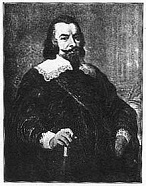
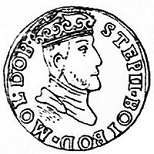

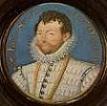









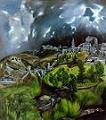

1595 On Jan. 16 sultan (since Dec. 15, 1574) Murad III (b. 1546) dies of apoplexy after fathering 105 children, and his son (by Sophia Baffo, who outmaneuvers the other wives to get him in) Mehmed III Adli (1566-1603) becomes Ottoman sultan #13 (until 1603) after inviting his 19 brothers (all sons of harem slave girls, ages 11 and under) to the palace and having them strangled with silk cords by deaf mutes (Ottoman law provides for the "right to execute his brothers"); he goes on to clog up the Bosphorus with the bodies of his daddy's pregnant mistresses, and enjoys watching women's breasts scorched off with hot irons; Baffo continues to rule behind the scenes, and ends the traditional practice of sending princes to governorships along with the need for fratricide with the supposedly more humane Kafes (cage), a palace prison for potential heirs served by deaf-mute eunuchs; although this produces lazy sexually-degenerate morons and idiots, some of them end up ruling anyway, hastening the decay and fall of the Ottoman Empire - later adopted by the U.S. for its presidents? In Jan. France declares war on Spain; in June Spain takes Doullens, followed in Oct. by Cambrai. In Jan. the English withdraw their forces from Brittany. On Feb. 21 after being imprisoned in 1592 and interrogated by grand inquisitor Richard Topcliffe (1531-1604) until he is convicted of high treason, English Jesuit priest-poet (St.) Robert Southwell (b. 1561) is hanged in Tyburn, his body quartered and displayed on London's four city gates; in 1970 Pope Paul VI canonizes him as one of the Forty Martyrs of England and Wales. On Apr. 26 Marino Grimani (1532-1605) becomes doge #89 of Venice (until Dec. 25, 1605). In Apr. Spanish explorer Alvaro Mendana de Neyra (b. 1542) sails from Callao on his second voyage to Micronesia; in May he discovers the Marquesas Islands (Las Marquesas de Mendoza); on Oct. 18 he dies in the Santa Cruz island group in the Solomons. On May 24 (June 3 Old Style) after Sigismund Bathory removes Aron Tiranul from power and replaces him as prince (voivode) of Moldavia by Stefan Razvan (-1595) (until Aug.), with the Treaty of Alba Iulia with Prince (since 1593) Michael the Brave (1558-1601) of Wallachia, placing the former Ottoman vassal principality of Moldavia under Razvan's overlordship; in Aug. Razvan signs a similar treaty in Alba Iulia with the Wallachians, becoming de facto prince of Transylvania, Wallachia and Maladavia, pissing-off the Polish-Lithuanian nobles, and on Aug. 23 (Aug. 13 Old Style) the Battle of Calugareni near the Neajilov River, is a V for the 15K-man army of Michael the Brave over 100K invading Turks under Sinan Pasha in Wallachia, after which Michael the Brave joins Bathory's 40K-man army led by Stephen Bocskay, and they go on to free Targoviste (Oct. 8), Bucharest (Oct. 12), then Braila, culuminating on Oct. 27-30 in a Christian V at the Battle of Giurgiu, catching the retreating Ottomans trying to use the same bridge over the Danube River they came in over, freeing Wallachia from Ottoman rule; after Michael retreats to the mountains at Stanilesti, the Ottomans begin plundering and taking slaves, causing Michael to revert to guerrilla warfare over the winter. On June 5 the Battle of Fontaine-Francaise is a strategic V for 3K French Protestant peasants under Henry IV over the 12K-man Spanish Catholic League under Don Juan Fernandez de Velasco, gov. of Milan and constable of Castile; Henry IV's life is saved by his sister Catherine de Bourbon's former chef Guillaume Fouquet de la Varenne (1560-1616), who is promoted to war commissioner followed by comptroller-gen. of posts, replacing Guise family member Hugues Du Mas, going on to reorganize the royal postal network and opening it to the public in 1598, with Catherine de Bourbon uttering the soundbyte: "It seems, la Varenne, that you have earned more by carrying my brother's chickens than by skewering mine." In the summer in England too much rain causes crops to fail for a 2nd straight year, resulting in another winter famine and many deaths. On July 5 Portuguese explorer Sebastiao Rodrigues Soromeno (Sebastián Rodríguez Cermeño) (1560-1602) sails from Manila in the San Agustin, reaching land between Point St. George and Trinidad Head in Calif. on Nov. 4, then S to Drakes Bay on Nov. 7, where Native Ams. greet him, but aren't as wowed as when they saw Sir Francis Drake in 1579; after a storm blows them N, their ship sinks, and they switch to a launch named the San Buenaventure, then leave on Dec. 8, heading S as fast as they can, failing to notice San Francisco Gay, er, Bay, discovering Monterey Bay on Dec. 10 and naming it Bahia de San Pedro in honor of St. Peter Martyr, and arriving at Puerta de Chacata, Mexico on Jan. 17. On July 21 after the earl of Tyrone tries to emulate Scotland's Auld Alliance by forming a similar alliance with Spain (but with less success because of the distances involved), four Spanish vessels are spotted off the coast of Cornwall, and on July 23 they land in Mount's (St. Michael's Mount) Bay (between Lizard Point and Gwennap Head), burn Penzance and sack Mousehole, but return to sea upon the arrival of English vessels, becoming the last Spanish landing in Cornwall. In Sept. Pope Clement VIII absolves Henri IV and recognizes him as king of France, thereby making it possible to end the Thirty Years' War in France. Elizabethan fag bashing? In Oct. Elizabeth I, saying that she would "seek all England for a solicitor" rather than appoint Bacon, appoints dark horse atty. Sir Thomas Fleming (1544-1613) as solicitor-gen., causing Essex to give up on her, and give Bacon some property worth £1.8K as compensation. On Nov. 5 Gaspar de Zuniga (Zúñiga) y Acevedo, 5th Count of Monterrey (1560-1606) becomes viceroy #9 of New Spain (until Oct. 26, 1603). On Nov. 17 (Accession Day) ends with a skit staged by Essex which strongly hints that the queen should "make him fit to command armies", causing her to comment that if she had known there would have been so much said of her, she would not have attended that night? On Dec. 12 the Battle of Suceava is a V for the Polish-Lithuanian army under Jan Potocki over the Transylvanian army under Stefan Razvan, who flees back towards Transylvania, is captured and impaled. Elizabeth I sends a treasure-hunting expedition from Plymouth to Puerto Rico headed by Sir Francis Drake, but the Spanish learn of it in time to defeat it; Sir John Hawkins (b. 1532) dies at sea near Puerto Rico. After govt. efforts to push the Counter-Reformation, a peasant revolt begins in Upper Austria. Polish king Sigismund (Zygmunt) III Vasa is forced by the Swedish Diet to accept Protestant Duke Charles of Sodermanland (future Charles IX), youngest son of Gustav I Vasa as regent; too bad, Charles tries to force Baron Klaus (Clas) Eriksson Fleming (1535-97), gov. of Finland to submit to his authority instead of the king's, causing a civil war (ends 1597), with Protestant and Roman Catholic nobles fighting the peasants. Caracas, Venezuela is sacked by English buccaneers. After hearing of a "city of gold" in South Am. last year, Sir Walter Raleigh explores 300 mi. up the Orinoco River, and discovers Guiana, but fails to find the fabled gold mine of El Dorado, or any gold mines, but goes on to pub. a book with an exaggerated account contributing to the legend. Hideyoshi orders his adopted son Hidetsugu to commit suicide, then wipes out his family in order to secure the succession of his son Hideyori. The Dutch East India Co. sends its first ships to the the East Indies, built using its wide-bodied fluyt design. Spain begins granting the asiento, a permit for a foreign trader to ship a certain number of slaves to its Am. colonies, causing the slave trade to blossom. Robert Fludd (1574-1637) succeeds Louis de Nevers as grandmaster of the Priory of Sion (until 1637) :). A movement begins in Poland to reunite the Eastern Orthodox and Roman Catholic churches, but it fails next year after Jesuit opposition, although the Uniate Church is formed by some Orthodox to recognize papal authority while retaining some Eastern rites. The English army finally abandons the bow as a weapon of war. Heels first appear on shoes - archers don't wear heels? German mathematician Bartholomaeus (Barthelemy) (Bartholomeo) Pitiscus (1561-1613) pub. the Latin work Trigonometria: sive de solutione triangulorum tractatus brevis et perspicuus (5 vols.) in Heidelberg, coining the term "trigonometry", which carries into English (1614) and French (1619) translations; je first borrows, er, uses decimal pits, er, points in his trigonometry tables, which he gets the big idea of using for problems on Earth instead of the heavens. Jesuit missionary Matteo Ricci mentions that the Chinese say that "The earth is flat and square, and the sky is a round canopy; they did not succeed in conceiving the possibility of the antipodes." Nonfiction: Samuel Daniel, The Civil Wars (8 vols.) (1595-1609); historical poem on the Wars of the Roses in ottava rima. Andreas Libavius (1540-1616), Opera Omnia Medico-Chymica. Andrew Maunsell, The Catalogue of English Printed Books; proposes that a book by indexed by author's surname, book subject, and translator. Gerardus Mercator (1512-94), Atlas (posth.). Abraham Ortelius (1527-98), Map of France; Map of Germany. Sir Walter Raleigh (1552-1618), The Discovery of Guiana. Sir Philip Sidney (1554-86), An Apologie for Poesie (The Defence of Poesy) (posth.); reply to Stephen Gosson's 1579 "Schoole of Abuse"; claims that poetry beats history and philosophy for rousing its readers to virtue. Faust Vrancic (1551-1617), Dictionary of Five European Languages: Latin, Italian, German, Dalmatian and Hungarian (Venice); 5K entries for each language; first use of the term Dalmatian for the Croatian language; Machinae Novae; contains 40 illustrations depicting 56 different machines or concepts, incl. the first Western drawings of a modern suspension bridge, becoming a big hit and getting translated into other Euro languages; incl. a sketch of a parachute he modelled after Leonaro da Vinci's and titles "Homo Volans", which he tests by jumping off St. Mark's Campanile n Venice in 1617 - and just happens to die early that year? Art: Bartolommeo Carducci (1560-1638), Descent from the Cross; his masterpiece. Annibale Carracci (1560-1609), Venus, Adonis and Cupid. El Greco (1541-1614), Study of a Man (Self-Portrait?) (1595-1600); View of Toledo (1595-1600). Novels: Gines Perez de Hita (1545-1619), Guerras Civiles de Granada (1595-1604); historical novel by narrator Abed Hamin about the 1491 fall of Granada. Plays: Antoine de Montchrestien (1575-1621), Sophonisbe, or La Carthaginoise (tragedy) (first play). George Peele (1556-96), The Old Wives' Tale (comedy). William Shakespeare (1564-1616), Richard II (history) (Richard II has 753 lines, 11th most); Richard II of England and his cousin Henry Bolingbroke (Henry IV), Henry's daddy John of Gaunt, Duke Edmund of York (John's brother), Thomas Mowbray, Duke of Norfolk; "The purest treasure mortal times afford/ Is spotless reputation" (1.1.177); "How long a time lies in one little word!" (1.3.213); "This royal throne of kings, this scepter'd isle/... This happy breed of men, this little world,/... This blessed plot, this earth, this realm, this England,/ This nurse, this teeming womb of royal kings,/ Fear'd by their breed and famous by their birth" (2.1.40); "The ripest fruit first falls" (2.1.154); "You pluck a thousand dangers on your head/ You lose a thousand well-disposed hearts" (Edmund) (2.1.205-6); "Not all the water in the rough rude sea/ Can wash the balm from an anointed king" (3.2.54); "The worst is death, and death will have his day" (3.2.103); "And nothing can we call our own but death,/ And that small model of the barren earth/ Which serves as paste and cover to our bones./ For God's sake, let us sit upon the ground/ And tell sad stories of the death of kings.../ All murdered; for within the hollow crown/ That rounds the mortal temples of a king/ Keeps Death his court... and with a little pin/ Bores through his castle wall, and farewell king!" (3.2.152-170). "He is come to open/ the purple testament of bleeding war" (3.3.93); "And my large kingdom for a little grave,/ A little little grave, an obscure grave" (3.3.153); Romeo and Juliet (tragedy); an update on the Pyramus and Thisbe story set in Verona; based on the 1562 poem The Tragicall Historye of Romeus and Juliet by Arthur Brooke (Broke) (-1563); "It is a play of itself the worst that I ever heard in my life" (Samuel Pepys, 1662); first romantic play to feature an onstage kiss between a man and woman; Romeo Montague and his friend Mercutio, Juliet Capulet and her nurse and cousin Tybalt, Friar Laurence, Count Paris (whom Juliet jilts for Romeo); Romeo means "pilgrim to Rome" in Italian, Juliet means "youthful"; "Two households, both alike in dignity"; "A pair of star-crossed lovers take their life" (Prologue, line 6); "O Romeo, Romeo! wherefore art thou Romeo?/ Deny thy father, and refuse thy name;/ Or, if thou wilt not, be but sworn my love,/ And I'll no longer be a Capulet" (2.2.33); "What's in a name? that which we call a rose/ By any other name would smell as sweet" (2.2.43); "Call me but love, and I'll be new baptized" (2.2.50); "For stony limits cannot hold love out" (2.2.67); "At lovers' perjuries/ They say, Jove laughs" (2.2.92); "In truth, fair Montague, I am too fond" (2.2.98); "O! swear not by the Moon, the inconstant Moon,/ That monthly changes in her circled orb,/ Lest that thy love prove likewise variable" (2.2.109-11); "Good night, good night! parting is such sweet sorrow,/ That I shall say good night till it be morrow" (Juliet) (2.2.184); "Wisely and slow; they stumble that run fast" (2.3.94); "O flesh, flesh, how art thou fishified!" (2.4.41); "A plague o' both your houses!/ They have made worms' meat of me" (3.1.112); "Adversity's sweet milk, philosophy" (3.3.54); "Hang up philosophy!/ Unless philosophy can make a Juliet" (3.3.54); "My only love sprung from my only hate" (Juliet); A Midsummer Night's Dream (1595-6) (comedy) (composed for a noble marriage in the winter of 1595-6 as a visualization of an ideal summer, and one of the few plots he didn't borrow from others?); Duke Theseus of Athens and his fiance Hipollyta the Amazon are to be married on the first night of the new Moon, and are approached by lovers Lysander and Hermia for permission to marry, but he orders her to marry Demetrius instead or face death or a nunnery, causing Lysander and Hermia to plan a secret elopement in the woods, filled with fairies ruled by King Oberon (whose servant is Puck AKA Robin Goodfellow) and Queen Titania; meanwhile Helena, who was jilted by Demetrius tries to get him back by giving away their plan, while in the woods, Quince the Carpenter, Snug the Joiner, Bottom the Weaver, Flute the Bellows-Mender, Snout the Tinker, and Starvelin the Tailor decide to stage a play about tragic lovers Pyramus and Thisby, which they turn into a comedy, while Titania falls in love with an ass; after a bunch of doo doo all four lovers are found in the woods by the duke, who first wants to kill Lysander, then changes his mind after Demetrius says he now loves Helena, allowing the two marriages to proceed after viewing the play; "The course of true love never did run smooth" (1.1.132) (Lysander); "Love looks not with the eyes, but with the mind,/ And therefore is wing'd Cupid painted blind" (1.1.234) (Helena); "The most lamentable comedy, and most cruel death of/ Pyramus and Thisby" (1.2.11); "Over hill, over dale,/ Thorough bush, thorough brier,/ Over park, over pale,/ Thorough flood, thorough fire" (2.1.2); "Ill met by moonlight, proud Titania" (2.1.60); "I'll put a girdle round the earth/ In forty minutes" (2.1.175); "Lord, what fools these mortals be!" (3.2.115); Love's Labour's Won (comedy); mentioned by Christopher Hunt in Aug. 1603; never found. Poetry: Richard Barnfield (1574-1620), Cynthia, with Certain Sonnets, and the Legend of Cassandra (Jan.); panegyric on Elizabeth I; dedicated to William Stanley, 6th Earl of Derby; written in the Spenserian stanza (8 lines of iambic pentameter and one Alexandrine line of iambic hexameter). Nicholas Breton (1545-1626), Marie Magdalen's Love: A Solemne Passion of the Soules Love. Thomas Campion (1567-1620), Poemata. Births: Polish-Lithuanian king (1632-48) and Russian tsar (1610-13) Wladyslaw IV Vasa (d. 1648) on June 9 in Lobzow (near Krakow); son of Sigismund III Vasa (1566-1632) and Anne of Austria (1573-98) (Hapsburg). English Puritan Separatist and Plymouth Colony gov. (1633, 1636, 1644) (ancestor of TLW?) Edward Winslow (OE "friend's hill", "wine's hill") (d. 1655) on Oct. 18 in Droitwich, Worcestershire; son of Edward Winslow (1560-1630) (son of Kenelm Winslow (1540-1607) and Katherine Perceday of Kempsey, Worcester) and Magdalene Ollyver (Oliver) Winslow; brother of John Winslow (1597-1674), Gilbert Winslow (1600-50), Josias (Josiah) Winslow (1605-74), and Kenelm Winslow; husband (1618-21) of Elizabeth Barker (-1621) and (1621-55) Susanna White (-1680); father of Josiah Winslow (1628-80); an ancestor of Thomas of Woodstock (1355-97), youngest son of Edward III; starts out apprenticed to London printer John Beale in Aug. 1613, joining the Separatists in Leiden in 1617, working for William Brewster. English diplomat Robert Sidney, 2nd Earl of Leicester (d. 1677) on Dec. 1; son of Robert Sidney, 1st earl of Leicester (1563-1626) and 1st wife Barbara Gamage (1563-1621); educated at Christ Church, Oxford U. French poet-critic Jean Chapelain (d. 1674) on Dec. 4 in Paris. Am. Indian princess Pocahontas ("frisky") (Matoaka) (Amonute) (Lady Rebecca Rolfe) (d. 1617); daughter of Powhatan Pawmunkey chief Wahunsunacock (1547-1618). French-Dutch mathematician Albert Gerard (Girard) (d. 1632) in Saint-Mihiel. English poet Thomas Carew (d. 1640). Acadian explorer Charles La Tour (d. 1665). English "In the Merry Month of May" singer-composer-lutenist John Wilson (d. 1674). Deaths: Italian architect Antonio da Ponte (b. 1512). Italian mystic (St.) Filippo (Philip) Neri (Nero) (b. 1515) on May 26 in Rome; beatified on May 11, 1615 by Pope Paul V; canonized on Mar. 12, 1622 by Pope Gregory XV. German duke of Saxony (1554-95) John Frederick II (b. 1529) on May 19 in Schloss Steyer, Upper Austria. English adm. Sir John Hawkins (b. 1532) on Nov. 12 at sea near Puerto Rico; in 2006 his descendant Andrew Hawkins publicly apologizes for his embarrassing slave trading - I'm just a ramblin' man? Irish lord of Tyrone Sir Turlough Luineach O'Neill (b. 1532) in Sept. Am. writer William Painter (b. 1540) in Feb. in London. Spanish explorer Alvaro de Mendana de Neyra (b. 1541) on Oct. 18 in the Solomons. Italian poet Torquato Tasso (b. 1544) on Apr. 25 in St. Anne's lunatic asylum, Sant'Onofrio; suffers from schizophrenia for the last 20 years of his life? English mathematician Thomas Digges (b. 1546) on Aug. 24 in London. Muslim sultan (1574-95) Murad III (b. 1546) on Jan. 15; leaves 103 children from his harem of 1.2K babes. English soldier Philip Howard, 13th earl of Arundel (b. 1557) on Oct. 19 in the Tower, London (dysentery); canonized in 1970. English Jesuit priest-poet St. Robert Southwell (b. 1561) on Feb. 21 in Tyburn (hanged). Scottish lord chancellor (1586-93) John Maitland, 1st lord Maitland of Thirlestane (b. 1587) on Oct. 3. Italian fencing master Camillo Agrippa (b. ?) in Milan.






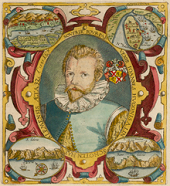






1596 On Jan. 31 the Decrees of Folembray, covering Mayenne, Nemours, and Joyeuse end the War of the Catholic League in France (begun 1588); on Feb. 17 the Duke of Guise enters Marseilles with help from the local pop. in time to stop the Spanish from seizing it, signing an agreement with Philip II on Mar. 24. In the spring Sir Francis Drake's expedition to Panama to divert the Spanish ends with no results to report except the death of Drake on Jan. 29 of dysentery; his crew buries him near Drake's Point on Drake's Island, then scuttles two ships, which are relocated in 2011. I like the way you move? In Mar. English courtier Robert Devereux, 2nd Earl of Essex (1565-1601) (first earl of Sex?), Elizabeth's favorite midnight snack goes from being "the greatest councillor of England, the Queen passing most of the day in private and secret conference with him", to a nat. military hero when he and Lord Charles Howard, 2nd Baron Howard of Effingham are appointed joint cmdrs. of an expedition of 150 ships and 10K men to destroy the Spanish Armada, sinking it and capturing Calais from the Spanish, which they had occupied on May 16, and sacking Cadiz (never ind about that awful dead Dr. Lopez who had said that his private parts suffer from shortcomings?); Sir Walter Raleigh returns from Guiana in time to ask to be appointed supreme cmdr. over them both, but the queen ends up making him rear adm. instead. In the spring Elizabeth I's cousin Henry Carey, first Baron Hunsdon (son of Mary Boleyn) dies, making the queen depressed; there being no Lord Chancellor, she promotes Essex's friend Sir Thomas Egerton to Kord Keeper of the Great Seal, saying that she had begun her reign with a Lord Keeper (Sir Nicholas Bacon, daddy of Sir Francis Bacon) and would end it with one. In June the Spanish merchant vessel San Andreas runs aground in Essex, England, causing William Shakespeare to refer to it in "The Merchant of Venice" when Salarino refers to "my wealthy Andrew docked in sand". In Aug. William Shakespeare's only son Hamnet (b. 1585) dies, and he makes the 2-day journey to Stratford-upon-Avon to see his family; he enters his Age of Histories (1596-99); his daddy John (d. 1601) successfully applies for promotion to the rank of gentleman with a coat of arms, which has a falcon and golden guess what? On Sept. 7 Elizabeth I celebrates her 63rd birthday, which in Tudor times is the grand climacteric year, which most people don't hope to survive. On Sept. 20 the city of Monterrey (Ciudad Metropolitana de Nuestra Señora de Monterrey) in the foothills of the Sierra Madre Mts. in NE Mexico (modern-day pop. 1.1M) is founded by new gov. #1 Diego de Montemayor (1530-1610) as the capital of the state of Nuevo Leon (Sp. "New Lion"). On Oct. 24-26 after capturing the fortress of Erlaus, the Ottomans under new sultan Mehmed III defeat the imperial Hapsburg army at the Battle of Keresztes (Cerestes) in N Hungary in a surprise V just as they were about to defeat them and kick them out of Bulgaria and half of Hungary, but political problems at home start to slow the Ottomans down in their Long War with the Hapsburgs - which is why it is so long? In Oct. after William Shakespeare's application to become a gentleman is denied, his father John Shakespeare is granted the Shakespeare Family Coat of Arms, consisting of "Gould, on a Bend, Sables, a Speare of the first Steeled Argent. And for his creast or cognizaunce a falcon, his winges displayed Argent standing on a wreath of his coullers", i.e., a yellow spear on a yellow shield, with the Latin inscription "Non Sans Droict", meaning "Not without Right". James VI of Scotland endorses the Nat. Covenant again; too bad, he sticks with the divine right of kings theory, arguing with leading Presbyterian churchman Andrew Melville (1545-1622), who calls him "God's sillie vassal" to his face, meaning that God is head of the Scottish kirk ahead of all people incl. him. The North Oxfordshire Uprising of 1596 against the landlords turns out a dud when leader Bartholomew Steere can only find nine followers. Afrasiyab becomes gov. of Basra, founding a dynasty that rules it as a virtually autonomous area until 1668. The Jelali Revolts begin in Anatolia under Ottomon soldier Kara Yaziji (d. 1602) (ends 1610), as unemployed soldiers become brigands. Zaydi imam Qasim leads a large revolt in Yemen (ends 1602). The Magalat Revolt of indios against the Spanish in the Philippines is led by Magalat, a chief of Cagayan. A Spanish-Portuguese expedition from the Philippines invades Cambodia, kills Chinese traders in Phnom Penh, kills the king and burns his palace; Barom Reachea V (Chau Ponhea Tan) (1579-99) becomes king of Khmer. After the Japanese fail to invade Korea, peace is declared between Japan and China. Sir Robert Carey, 1st Earl of Monmouth (1560-1639) succeeds to his father's office of lord warden of the Marches (until Feb. 1598), mopping up the lawless Border Reivers, which had been a nuisance since the late 13th cent. - erin go bragh? The Dutch set up a factory at Palembang in Sumatra. Warsaw (settled in the 11th cent.) becomes the capital of Poland (until 1794). Willem Barents discovers Spitsbergen ("Pointed Mountains") in the Barents Sea; really the largest island in the NW part of Svalbard, discovered in 1194 - sounds like a mirror trick? The Jesuits spread rumors that Theodore Beza and the Church of Geneva have done a Henri IV and returned to the Catholic Church, causing Beza to pub. a witty satire showing he's not an old fart, even though he retires next Jan. with a new 2nd wife, Catharina del Piano of Genoa, his 1st wife of 40 years Claudine having died childless in 1588. Stocky sawed-off future Jamestown founder John Smith (b. 1580) teaches himself swordsmanship, hand-to-hand combat and how to make bombs from clay pots and tar, then leaves England to lead a life of military adventure, fighting as a mercenary in France, the Netherlands and SE Europe, finally getting captured by the Turks in Hungary, who shave his head and rivet an iron ring around his neck; after enduring starvation rations and beatings Smith jumps his master, crushes his skull with a bat, steals his clothes, stuffs the corpse in a haystack and escapes on his horse along the Silk Road, returning to Europe in 1604. Tomatoes are introduced in England. An error in the printed text of a work by William of Malmesbury substitutes "niddering" for "nithing" (coward, wretch), and is later adopted by Sir Walter Scott and popularized. The 1559 Catholic Index of Prohibited Books is made more restrictive, and authorization is withheld for translating or printing Bibles in the vernacular, with all copies found to be destroyed. Sidney Sussex College is founded at Cambridge U. by a bequest from the will of Elizabeth's lady of the bedchamber Frances Radclyffe (nee Sidney), Countess of Sussex (1531-89) on the site of Grey Friars' House, which had been suppressed in 1538, and it becomes the first college at Cambridge to admit Scottish and Irish students, becoming known for its E-shaped bldgs.; its mascot is the blue and gold porcupine, taken from her family coat of arms; Oliver Cromwell is one of the first students, although he never graduates, and later his decapitated head is buried beneath the college chapel. In 1596 English impresario James Burbage (1531-97), father of actor Richard Burbage (1567-1619) purchases the old Blackfriars Theatre in London (founded on the site of a 13th cent. Dominican monastery), whose lease was held in the mid-1580s by well-connected courtier and art patron Edward de Vere, 17th Earl of Oxford (1550-1604), but because of neighborhood pressure he couldn't use it for his company, so in 1599 it ends up being used by the pre-pubescent boys from the Chapel Royal under the name Children of the Chapel, who innovate with artificial lighting and music between acts while successfully charging high prices; in 1608 Burbage finally gets control again, and uses it for winter performances, with the Globe used during the summer; it is demolished on Aug. 6, 1655. Inventions: Galileo Galilei invents the Galilean Thermometer, a sealed glass cylinder containing a clear liquid and a series of objects whose densities sink in sequence as the liquid is warmed and decreases in density - can it be stuck up one's you know what? Windmills are first used in Holland to drive mechanical saws by sawmill owner Cornelis Corneliszoon van of Uitgeest (Krelis Lootjes) (1550-1600), who speeds up the conversion of log timber into planks by 30x. Nonfiction: Anon., Spanish-Christian Christian tract; first book printed in the Philippines. Gaspard Bauhin (1560-1624), Pinax Theatri Botanici; exhaustive account of synonyms used by earlier botanists; introduces genera and species. Tycho Brahe (1546-1601), Epistolae Astronomicae. Andrea Cesalpino (1519-1603), De Metallicis (3 vols.) (Rome); a work on chemistry, mineralogy, and geology, showing a correct understanding of fossils, and anticipating some of the discoveries of Antoine Lavoisier and Rene Just Hauy. Ludolph van Ceulen, Van den Circkel; gives pi to 20 decimal places - 3.14159265358979323846[26]? Sir John Harington (Harrington) (1560-1612), A New Discourse of a Stale Subject, Called the Metamorphosis of Ajax; by a godson of Elizabeth I; punningly describes his invention of the first practical jakes (john) (flush toilet), complete with a water tank above, and a faucetlike handle for flushing, which he built for the queen at her palace in Richmond; the ridicule it draws causes the queen to banish him, deny a patent on grounds of propriety, and remove the stinking contraption, with the smell wafting up through the pipe (it takes until 1775 to figure out to put a curve in the pipe) - get that hairy john out of my bath? Jan Huyghen van Linschoten (1563-1611), Reys-gheschrift vande navigatien der Portugaloysers in Orienten (Itinerario) (Travel Accounts of Portuguese Navigation in the Orient) (English trans. "Iohn Huighen van Linschoten his Discours of Voyages into ye Easte & West Indies" pub. in 1598); details of his travels in the East Indies, with the first maps of the area, esp. India, obtained by ripping-off the secret charts of his patron the Portuguese viceroy, allowing the English and Dutch to learn the passage through the Malacca Strait via the Sunda Strait, enabling them to set up the British East India Co. and the Dutch East India Co. to break the Portuguese monoply; contains descriptions of tea drinking in Japan: "Their manner of eating and drinking is: everie man hath a table alone, without table-clothes or napkins, and eateth with two pieces of wood like the men Chino: they drink wine of Rice, wherewith they drink themselves drunke, and after their meat they use a certain drinke, which is a pot with hote water, which they drink as hot as ever they may indure, whether it be Winter or Summer... The aforesaid warme water is made with the powder of a certaine hearbe called Chaa, which is much esteemed, and is well accounted among them." Giovanni Antonio Magini (1555-1617), Geographiae Universae tum Veteris, tum Novae Absolutissimum Opus (2 vols.); atlas. Father Robert Persons (1546-1610), Memorial for the Reformation of England; Jesuit priest thinks out how England can return to the True Catholic Faith. Georg Joachim Rheticus (1514-76), Opus Palatinum de Triangulus (Trigonometric Tables) (posth.); completed by his student Valentin Otto; 100K data items with 10-decimal accuracy, used into the early 20th cent. - worked so hard that even Rainman would puke? Edmund Spenser (1552-99), A View of the Present State of Ireland; explains the ancient Irish Celtic Brehon Laws, where the hereditary brehons (judges) hold court in the open air seated upon sods. Poetry: Sir John Davies (1569-1626), Orchestra, or A Poem of Dancing, Judicially proving the true observation of time and measure in the authentical and laudable use of dancing; Gullinge Sonnets. Michael Drayton (1563-1631), Mortimeriados (about the Baron's Wars); Robert, Duke of Normandy. George Peele (1556-96), An Eclogue Gratulatory, Addressed to the Renowned Shepherd of Albion's Arcadia, Robert, Earl of Essex. Edmund Spenser (1552-99), The Faerie Queene, Books 4-6; Book 5 features the execution of Duessa, based on Mary, Queen of Scots; Book 6 features Sir Calladore fighting the Blatant Beast. Plays: William Shakespeare (1564-1616), The Merchant of Venice (tragi-comedy) (anti-Semitic?) (1596-8); written to capitalize on the success of Christopher Marlowe's 1592 play "The Jew of Malta"; Shylock the Jew and his daughter Jessica, her lover Lorenzo, servant Launcelot, rich heiress Portia, merchant Antonio and his friend Bassanio (Portia's beau); the name Jessica (the original Jewish American princess?) is invented for the play; a rich Jew lends 3K ducats with the surety being a pound of Antonio's flesh (to get even for all his mistreatment), but it backfires bigtime; "Your mind is tossing on the ocean" (1.1.8); "You have too much respect upon the world:/ They lose it that do buy it with much care" (1.1.74); "What news on the Rialto?" (1.3.34); "The devil can cite Scripture for his purpose" (1.3.99); "But love is blind, and lovers cannot see/ The pretty follies that themselves commit" (2.6.36); "Young in limbs, in judgment old" (2.7.71); "Here are a few of the unpleasant'st words that ever blotted paper" (3.2.252); "I am not bound to please thee with my answers" (Shylock) (4.1.65); "The quality of mercy is not strain'd,/ It droppeth as the gentle rain from heaven/ Upon the place beneath: it is twice bless'd" (4.1.184-6); "To do a great right, do a little wrong" (4.1.216); "He is well paid that is well satisfied" (4.1.416); "How sweet the moonlight sleeps upon this bank!/ Here will we sit, and let the sounds of music/ Creep in our ears" (5.1.54-6); Henry IV, Pt. 1 (1596-7) (history); Henry IV of England, his son Prince Hal, Hotspur (Henry Percy) (son of the earl of Northumberland), Sir John Falstaff, Welsh rebel Owen Glendower, English rebel Edmund Mortimer, Scottish rebel Earl of Douglas; "Sink or swim" (1.3.194); "I am not in the roll of common men" (3.1.43); "He was but as the cuckoo is in June,/ Heard, not regarded" (3.2.75); "My nearest and dearest enemy" (3.2.123); "The better part of valor is discretion" (5.4.130); "I have more flesh than another man, and therefore more frailty" (3.3.187); "The very life-blood of our enterprise" (4.1.28); Henry IV, Pt. 2 (1596-7) (history) (Falstaff has a total of 1,178 lines in Pts. 1 & 2); "It was always yet the trick of our English nation, if they have a good thing, to make it too common" (1.2.244); "He hath eaten me out of house and home" (2.1.82); "Let the end try the man" (2.2.53); "Is it not strange that desire should so many years outlive performance?" (2.4.283); "Uneasy lies the head that wears a crown" (3.1.31); "O God! that one might read the book of fate" (3.1.45); "There is a history in all men's lives" (3.1.80); "A man can die but once; we owe God a death" (3.2.253); "We see which way the stream of time doth run/ And are enforc'd from our most quiet sphere/ By the rough torrent of occasion" (4.1.70); "The wish was father, Harry, to that thought!" (4.5.91); "Before thy hour be ripe" (4.5.95); "Commit the oldest sins the newest kind of ways" (4.5.124); "His cares are now all ended" (5.2.3); "How ill white hairs become a fool and jester!" (5.5.52). Art: Michelangelo da Caravaggio (1571-1610), The Fortune Teller; Cupid with Arrows; Basket of Fruit. Lavinia Fontana (1552-1614), The Monkey Girl; portrait of Tognina Gonzales, daughter of Petrus Gonzales of the Canary Islands, whose family have hypertrichosis. Births: Dutch landscape painter Jan Joseph (Josephszoon) van Goyen (d. 1656) on Jan. 13 in Leiden; studies in Haarlem, then sets up his studio in The Hague at age 35; known for cranking them out quick and dirty to make more bucks. French "Meditations on First Philosophy" philosopher-mathematician-soldier (Roman Catholic) (Rosicrucian) ("Father of Modern Philosophy") (founder of analytic geometry) Rene (René) Descartes (d. 1650) (Renatus Cartesius) on Mar. 31 in La Haye en Touraine, Indre-et-Loire; author of the dictum "Cogito ergo sum" (Je pense donc je suis); does much of his thinking in and around the battlefields of Europe. Swedish field marshal Johan Baner (Banér) (d. 1641) on June 23 in Djursholm Castle; father and uncle are beheaded for treason in 1600 for supporting Sigismund I. Japanese emperor #108 (1611-29) Go-Mizunoo (Masahito) (d. 1680) on June 29; 3rd son of Go-Yozei (1572-1617). Russian Romanov tsar (1613-45) Michael (Mikhail Fyodorovich) I (d. 1645) on July 22 (July 12 Old Style) in Moscow; son of Feodor Nikitich Romanov (Patriarch Filaret) and Xenia (Great Nun Martha); nephew of Feodor I. Bohemian "Winter Queen" (1619-20) and Bavarian electress Palatine (1610-20) ("the Queen of Hearts") Elizabeth Stewart (Stuart) Bohemia (d. 1662) on Aug. 19 in Falkland Castle, Fifeshire, Scotland; eldest daughter of James VI of Scotland and Anne of Denmark; named to flatter Elizabeth I; wife (1613-) of Frederick V, Elector Palatine (1596-1632); mother of Palatine Elector Charles I Louis and Sophie of Hanover (1630-1714), mother of George I of England and founder of the English Hanover Dynasty. Bohemian "Winter King" (1619-29) and Bavarian elector Palatine (1610-23) Frederick (Friedrich) V (d. 1632) on Aug. 26 in Amberg; son of elector Frederick IV and Louisa Juliana (daughter of Prince William the Silent or Orange); husband (1613-) of Elizabeth Stewart (1596-1662). English dramatist ("last of the Elizabethans") James Shirley (d. 1666) on Sept. 18 in London; son of Sir Thomas Shirley (1564-1620). Italian Baroque painter-architect Pietro (Berrettini) da Cortona (d. 1669) (b. 1597?) on Nov. 1 in Cortona, Tuscany. Italian violin maker (luthier) Nicolo Amati (d. 1684) on Dec. 3 in Cremona; the most eminent of the Amati; son of Girolamo Amati (1551-1635); grandson of Andrea Amati (1505-78); father of Girolamo Amati (Hieronymus II) (1649-1740); teacher of Antonio Stradivari and Andrea Guarneri. Italian gen. Thomas Francis of Savoy, Prince of Carignano (d. 1656) on Dec. 21 in Turin; youngest son of Charles Emmanuel I of Savoy (1562-1630) and Catherine Michelle of Spain (1567-97), daughter of Philip II (1527-98) and Elisabeth of Valois (1545-68); founder of the Savoy-Carignano branch of the House of Savoy, which rules Sardinia in 1836-61, and Italy in 1861-46. Swiss Grisons leader George (Georg) (Jorg) (Jurg) (Jörg) (Jürg) Jenatsch (d. 1639) in Samedan. Russian tsar (1613-45) (founder of the Romanov Dynasty) Michael (Mikhail) I Fyodorovich Romanov (Romanoff) (d. 1645) on July 12 in Moscow; son of Patriarch Filaret (Feodor Nikitich Romanov) and Martha the Great Nun (Xenia); father of Alexis I (1629-76). Dutch poet-composer Sir Constantijn Huygens, Lord of Zuilichem (d. 1687) on Sept. 4 in The Hague; father of Christiaan Huygens (1629-95). Flemish Jesuit writer Jean de Bolland (d. 1665) in Tirlemont. Am. Puritan minister Richard Mather (d. 1669) in London, England; emigrates to the New england in 1635; father of Increase Mather (1639-1723); grandfather of Cotton Mather (1663-1728). Deaths: English lord chamberlain (1585-96) Henry Carey, 1st baron Hunsdon (b. 1526) on July 23. Italian agronomist Giovan Vettorio Soderini (b. 1526) on Mar. 3 in Volterra. Italian artist Pellegrino Tibaldi (b. 1527) n Milan. English MP Peter Wentworth (b. 1530) on Nov. 10. French political philosopher Jean Bodin (b. 1530) (plague); leaves Method for the Easy Understanding of History; "Of history, that is, the true narration of things, there are three kinds, human, natural and divine". Dutch composer Giaches de Wert (b. 1535). French lawyer-scholar Pierre Pithou (b. 1539) on Nov. 1 in Nogent-sur-Seine. English heir (to Elizabeth I) Lady Margaret Stanley, Countess of Derby (b. 1540) on Sept. 28. French poet Florent Chrestian (b. 1541) on Oct. 3. Japanese samurai Hattori Hanzo (b. 1542) on Dec. 23 in Edo (KIA). English adventurer Sir Francis Drake (b. 1545) on Jan. 29 in Panama (dysentery); buried at sea. German landgrave George I of Hesse-Darmstadt (b. 1547) on Feb. 7 in Darmstadt. English poet-dramatist George Peele (b. 1556) in Oct.-Nov.; leaves The Beginnings, Accidents, and End of the Fall of Troy.

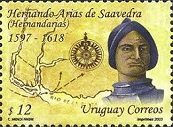


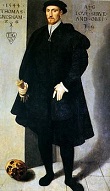
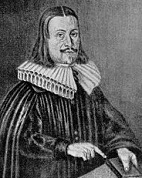
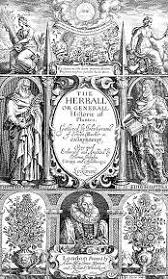
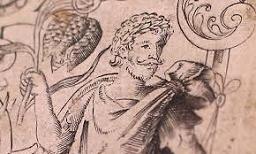
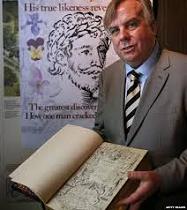

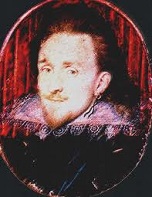


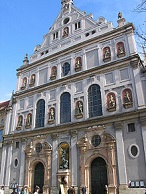
1597 On Feb. 5 the town of San Nicolas (Nicolás) de los Garza in NE Mexico near Monterrey is founded. On June 5 Robert Devereux, 2nd Earl of Essex (1565-1601) fails in an expedition to intercept the Spanish treasure fleet off the Azores, and loses his fortune and the queen's favor. On Mar. 19 Japan tries to conquer Korea for a 2nd time after the Chinese insult Hideyoshi by calling him king instead of emperor; in Aug. Hideyoshi and his son Hideyori amuse themselves with an elephant provided by the Spanish; on Aug. 28 after Korean adm. Ri Sun Shin is tortured and demoted for ignoring a message to meet the approaching Japanese fleet (thinking the area has hazardous rocks?), and is replaced with his rival adm. Won Gyun (Kyun) (1540-97), the naval Battle of Chilcheollyang on a narrow strait near Geoje Island becomes the only naval V for the Japanese in the Imjin War (begun 1592), with 500-1K Japanese ships surprising and defeating 169 turtle Korean ships, destroying 157 of them after inept Won Gyun makes all the wrong moves, and Adm. Bae Seol chickens out of this yang hell and runs with his 12 turtle ships; on Aug. 27 Korean adm. Yi Eok-gi (b. 1561) and adm. Won Gyun are killed after landing on a nearby island and stumbling into a fort filled with Japanese soldiers; after the battle, which destroys the Korean navy, adm. Ri Sun Shin is quickly reinstated, and is put in charge of the 12 ships and 200 men that had fled the battle of Chicken Hell Yang, redeeming himself on Oct. 26 by winning the naval "Miracle" Battle of Myongnyang (Myeongyang), defeating 133 Japanese ships and saving the war; Hideyoshi orders the crucifixion of Jesuits, and orders Christian missionaries to leave Japan, but backs off for fear of losing Portuguese trade. On Apr. 13 Baron Klas Fleming of Finland is killed, ending the Swedish Civil War (begun 1595); too bad, Duke Charles stinks himself up by defiling his body? On Oct. 15 Bavarian Wittelsbach duke-elector (since Oct. 24, 1579) William V the Pious (1548-1626) abdicates in favor of his son Maximilian I (the Great) (1573-1651), who becomes duke of Bavaria (until Feb. 25, 1623), followed by elector Palatine (until Oct. 24, 1648) and elector of Bavaria (until Sept. 27, 1650), then retires to a monastery, leaving his son to become great trying to handle the 30 Years' War (1618-48) and prevent Germany from becoming the battleground of Europe? The Spanish conquer the fortress town of Amiens (capital of Picardy) on the Somme River, 72 mi. N of Paris (until 1598). Philip II opens peace talks with Henri IV. Upper Austria is re-Catholicized by force - drop that Bible and kiss this crucifix? The Persians under Shah Abbas I defeat the pesky Uzbeks near Herat, and drive them over the Oxus River. The Christians under Michael the Brave decisively defeat the Muslim Ottomans at the Battle of Targoviste in Romania. Asuncion, Paraguay-born Hernando Arias (Hernandarias) de Saavedra (1561-1634) becomes gov. of Rio de la Plata (until 1599, then 1602-9), becoming the first person born in the Americas to become govt. of a New World Euro colony; in 1615-17 he becomes gov. of Paraguay. English privateer Sir Francis Drake lands in San Francisco Bay and conducts the first Anglican service in North Am. The Spanish city of Perpignan, 40 mi. S of Narbonne and 100 mi. N of Barcelona (last major town in Languedoc before the Spanish border) is sieged by the French. Convicted witches Bessie Thom and Christen Mitchell are executed in Aberdeen, Scotland; on Mar. 8, 2022 (Internat. Women's Day) the Scottish govt. formally apologizes for all its witchcraft trials. An English act of Parliament prescribes sentences of transportation to colonies for convicted criminals. English merchants are expelled from the Holy Roman Empire in retaliation for English treatment of the Hanseatic League in London. The first field hospitals and dispensaries appear in Europe. Gresham College is founded in Bishopsgate, London by a bequest from the will of wealthy merchant Sir Thomas Gresham (1519-79), founder of the Royal Exchange, establishing seven professorships (astronomy, divinity, geometry, law, music, physic, rhetoric), each who receive £50 a year to give six public lectures; early professors incl. Christopher Wren (astronomy) and Robert Hooke (geometry); in 1663-1710 it houses the Royal Society; in 1842 it moves to Gresham St., followed in 1991 to Barnard's Inn Hall in Holborn; in 1985 a professorship is added in commerce, followed in 2014 by environment, and in 2015 in info. technology. The Puritan-influenced English Council closes down theaters on the ground that they are hotbeds of subversive govt., but Elizabeth I makes them rescind their order. Playwright Ben Jonson volunteers to fight in Flanders, and kills a man in single combat. Love's Labour's Lost became the first play pub. under William Shakespeare's name; financially fixed, he buys the timber-brick New Place on Chapel St. for £60 from William Underhill, "a praty howse of brike and tymbar" (John Leland, Itinerary, 1540) (with 10 fireplaces), the 2nd largest house in Stratford-upon-Avon, built in 1486 by future lord mayor of London (1491-) Sir Hugh Clopton (1440-96) (demolished in 1759); meanwhile widowed brain babe (poet, scholar, theologian) Mary Sidney Herbert, Countess of Pembroke (1561-1621) (brother of Sir Philip Sidney) meets Shakespeare in her estate at Wilton, commissioning him to write 17 sonnets to persuade her son William Pembroke, 3rd Earl of Pembroke (1580-1630) to marry, after which she moves to London, while they become secret lovers until something makes one of them pub. the sonnets, messing Shakespeare up after he's afraid to be outed and the public hates them?; is she the real author of the First Folio, her connections to executed traitor Lady Jane Grey and her gender causing her to have to use him as her front - stay tuned? Aldine Press in Venice (founded 1494) ceases pub. after 908 works. Architecture: The Bridge of Sighs, designed by the same architect who did the Rialto Bridge (1591) is built in Venice across the narrow Rio della Paglia canal, connecting the Carceri (prison) with the Palace of the Doges (court) - don't ask? St. Michael's Church in Munich (begun 1585), designed by Italian-Dutch painter-architect Friedrich Sustris (1540-99) is finished, becoming a spiritual center of the Counter-Reformation. The Yeni Valide Mosque, in Istanbul, the last mosque to be built in the Ottoman imperial style is begun under Sultan Safiye; too bad, it costs so much that the Janissaries begin to grumble, and after her death it grinds to a halt, and is not finished until 1663; another one is built in 1708-10 by Sultan Ahmed III in honor of his mother Emetullah Rabi'a Gulnus Sultan. Inventions: Galileo Galilei develops the first proportional (sector) compass. Music: Orazio Vecchi (1550-1605), L'Amfiparnasso (Modena). Art: El Greco (1541-1614), St. Martin and the Beggar (1597-9). Nonfiction: Sir Francis Bacon (1561-1626), Essays, Civil and Moral, Vol. 1; describes the process of inductive reasoning, reversing Aristotle and his process of deductive reasoning, becoming the beginning of formal scientific thought in Europe. Nicholas Breton (1545-1626), Wit's Trenchmour. Theodor de Bry (1528-98), Icones Quinquaginta Virorum Illustrium; heraldic emblems. John Dowland (1563-1626), First Booke of Songes. John Gerard (1545-1612), The Herball, or Generall Historie of Plantes; 1,484 pages; England's best known herbal; mentions Carolus Clusius in 1585 but not Raleigh in 1586 concerning potato cultivation in Europe; the title page has an engraving by William Rogers; in May 19, 2015 historian Mark Griffiths announces that it contains the only true portrait of William Shakespeare, at his prime (age 33). Richard Hooker (1554-1600), Laws of Ecclesiastical Polity, Vol. 5; written in Bishopsbourne, Kent. James VI/I (1566-1625), Daemonologie; Andreas Libavius (1555-1616), Alchymia; the first systematic chemistry textbook; describes the use of chemistry for drugs, acknowledging the possibility of transmutation; describes how ammonia turns cuprous salt solutions dark blue; first to claim that fermentation and putrefaction are different processes, and to describe a method for distilling alcohol; describes how to make many useful chemicals such as hydrochloric acid and ammonium sulphate. Thomas Morley (1557-1602), A Plaine and Easie Introduction to Practicall Musick. Jean de Serres, Inventaire General de l'Histoire de France. Plays: Ben Jonson (1572-1637) and Thomas Nashe (1567-1601), The Isle of Dogs (first play); suppressed for sedition after a performance in July. John Lyly (1553-1606), The Woman in the Moone. William Shakespeare (1564-1616), The Merry Wives of Windsor (1597-8) (Falstaff has 436 lines, which would make his the role with the most lines if the 1,178 from "Henry IV, Pts. 1&2" are added); Falstaff, Master Ford and Mistress Ford, Master Page and Mistress Anne Page, Fenton, Doctor Caius, Sir Hugh Evans, Master Slender, Justice Shallow; "In despite of the teeth of all rhyme and reason, that they were fairies" (Falstaff) (5.5.126-7). Novels: Thomas Deloney (1543-1600), Jack of Newbury; one of the first English novels to depict the life of the common people, clothiers (tailors). Births: French poet-writer Vincent Voiture (d. 1648) on Feb. 24 in Amiens; son of a rich merchant. Sicilian priest-astronomer Giovanni Battista Hodierna (d. 1660) on Apr. 13. Dutch dir.-gen. of New Netherland (1638-47) Willem Kieft (d. 1647) in Sept. in Amsterdam. German #1 poet Martin Opitz von Boberfeld (d. 1639) on Dec. 23 in Bunzlau, Lower Silesia. English "A Mouzell for Melastomus" feminist poet-polemicist (first woman) (Calvinist) Rachel Speght (d. 1622). English Anglican clergyman Thomas Gage (d. 1656); brother of Sir Henry Gage (1597-1645); educated at the College of St. Omer, and English College, Vallidolid; starts out a Dominican friar then converts to Anglicanism in 1642. Dutch painter Jacob Jansz van Velsen (d. 1656). German celeb's father Friedrich Leibniz (d. 1652) in Altenburg; son of Ambrosious Leibniz and Anna Deuerlin; father of Gottfried Wilhelm von Leibniz (1646-1716); eucated at the U. of Leipzig. English Parliamentarian soldier Sir William Waller (d. 1668) in Knole House, Sevenoaks, Kent; educated at Magdalen Hall, Oxford U.; son of Sir Thomas Waller; cousin of Sir Hardress Waller (1604-66); knighted in 1622; inventor of the idea of the New Model Army. English physician-anatomist Francis Glisson (d. 1677) (b. 1599?) in Bristol; grows up in Rampisham, Dorset; educated at Caius College, Cambridge U. Deaths: Italian painter Prospero Fontana (b. 1512). German Counter-Reformation Jesuit theologian (St.) Peter Canisius (b. 1521) on Nov. 21 in Fribourg. English MP William Brooke, 10th baron Cobham (b. 1527) on Mar. 6. Italian philosopher-scientist Franciscus Patricius (b. 1529) on Feb. 6 in Rome. German organist-composer Elias Nikolaus Ammerbach (b. 1530). Spanish architect Juan de Herrera (b. 1530). Italian duke of Ferrara (1559-97) Alfonso II d'Este (b. 1533) on Oct. 27 in Ferrara. Spanish poet ("El Divino") Fernando de Herrera (b. 1534). Finnish adm. baron Klaus Fleming (b. 1535) on Apr. 13 in Pohja. Indian maharana of Mewar (1572-97) Pratap Singh I (b. 1540) on Jan. 29 (hunting accident). Dutch navigator Willem Barents (b. 1547) on June 20 on the Barents Sea near Novaya Zemlya, Russia. Austrian mother (of Don John of Austria) Barbara Blomberg (b. 1527) on Dec. 18 in Ambrosero, Cantabria, Spain. Italian printer Aldus Manutius the Younger (b. 1547).

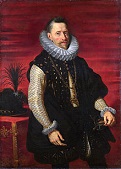











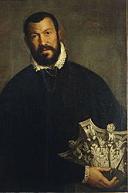


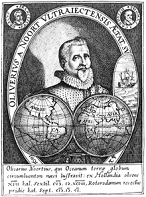


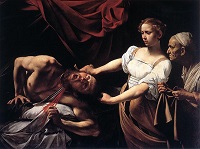
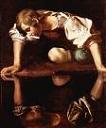
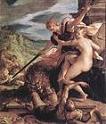
1598 On Jan. 7 tsar (since 1584) Fyodor I the Ding-Dong, er, Bellringer (b. 1557) dies, and Boris Godunov (1551-1605) seizes the throne (until Apr. 13, 1605), and is formally elected tsar of Russia by the Zemsky Sobor (nat. assembly); the Rurik Dynasty in Russia comes to an end, and the Time of Troubles begins (ends 1613) as the lack of an heir to the throne leaves it open to invasion by Swedish and Polish armies, while Cossack bands run riot, slaughtering officials and nobles; Godunov banishes the Romanovs, attempts to Westernize Russia, and strengthens commerce while running a spy service with a horde of informers; the Russian Orthodox Church is established. You Anglos can take Plymouth Rock and? Early in the year Zacatecas, Mexico-born Spanish conquistador Don Juan de Onate (Oñate) Salazar (1550-1626) leads a Spanish expedition of 400 colonists under royal patent to subjugate New Mexico and establish a permanent colony on the Rio Grande River; after five waterless days crossing the desert, he finds the Rio Grande Valley near present-day San Elizario, Tex. (20 mi. SE of El Paso), calling it "the Elysian field of happiness", and on Apr. 30 claims the land drained by the Rio Grande River in the name of King Philip II, holding a Mass and celebration which becomes known as the "First Thanksgiving in the U.S."; an 83-wagon train with 7K livestock then continues upriver, crossing at the site of modern-day El Paso; on May 21 they bury Pedro Robledo at the site of modern-day Mt. Robledo, then explore the 90-mi. Jornada del Muerto (Dead Man's Route) to the N, running out of water and losing many colonists, until they see a dog with a wet muzzle and follow him to modern-day Perillo (Los Charcos del Perillo) ("The Pools of the Little Dog"); he stops at a Piro Indian pueblo N of San Antonio, receiving corn from them, causing him to name the pueblo Socorro (Sp. "help") (alt. 4,579 ft.), and two priests are dropped off, who raise the first grapes in New Mexico; on July 11 Onate reaches modern-day Espanola, an Indian pueblo N of modern-day Santa Fe, and founds San Gabriel del Yunque, which becomes the first capital of New Mexico, with himself as gov. of Santa Fe de Nuevo Mexico; next Jan. 22-24 the Acoma Uprising (Massacre) (Battle of Acoma Pueblo) is caused by his troops demanding supplies they need to survive the winter, which causes them to kill 13 Spaniards, and in retaliation next Jan. 22-24 Onate orders the murder of 800 villagers, and amputates the left foot of each of the remaining 80 men over age 25, then enslaves the remaining 500 women and children. Can't we all just get along? On Apr. 30 Henri IV of France signs the Edict of Nantes, granting Protestant Huguenots the right to have their own fortified towns and to pray in selected locations, ending the Huguenot-Catholic civil wars in France (begun 1562); too bad, the French parliament resents it and doesn't recognize it until 1600, and after they get in the way of the absolutists Louis XIII and Louis XIV it is revoked in 1685, and Huguenot ass is grass in France? In Apr. Sigismund Bathory separates from his wife Christina of Austria, resigns as prince of Transylvania in favor of HRE Rudolf II in order to take holy orders, then in Oct. reneges and gives it to his cousin Cardinal Andrew Bathory (1563-99) (a grandmaster of the Order of the Dragon), which is approved by the Polish-Lithuanian Commonwealth, pissing-off the Hapsburgs, who recruit Michael the Brave to kick his butt. On May 2 the Treaty (Peace) of Vervins (Aisne) ends the 8th and last French War of Religion with Spain (begun 1592), with withdrawal of Spanish troops from France; Philip II resigns his claim to the French crown before croaking on Sept. 13 in Madrid, and France is united under Henri IV; on May 6 Roman Catholic archbishop Albert VII of Austria (1559-1621) (son of HRE Maximilian II) becomes Hapsburg gov. of the Netherlands (until July 13, 1621). On July 2 Dutch merchant Olivier van Noort (1558-1627) leaves Rotterday with four ships to attack Spanish possessions in the Pacific and trade with China and the Spice Islands, sailing through the Magellan Strait, losing two ships and capturing several Spanish ships along the Pacific Coast of South Am., fighting a naval battle off Fortune Island on Dec. 14, 1600 and sinking Spanish galleon San Antonio (their flagship) while losing the Eendracht, causing him to return to Rotterdam via the future Dutch East Indies and the Cape of Good Hope on his last ship Mauritius with 45 of 248 men, landing on Aug. 26, 1601 and barely breaking even, becoming the first circumnavigation of the Earth by a Dutchman, turning the Dutch on to returning bigly, er, big league. On Aug. 4 William Cecil, Lord Burghley (b. 1520) dies at age 78, leaving his son Robert Cecil (1563-1612) as secy. of state (lord privy seal) (until May 24, 1612), starting out a clever guy with none of his daddy's tact and experience? On Aug. 14 Irish forces under Irish "Erin go Bragh" freedom fighter Hugh O'Neill, 2nd Earl of Tyrone (1550-1616) ambush the stankin' English under Irish marshal Sir Henry Bagenal (b. 1556) at the Battle of the Yellow Ford near the Blackwater River in Ulster, and annihilate them, killing or wounding 1.2K English troops, which leaves English-held territory down to Dublin undefended; in return for sparing the remnant of Bagenal's army locked up in the Cathedral of Armagh, Tyrone is given Armagh and Portmore Fort on the Blackwater River, which becomes the home of the O'Neills; FitzGerald Land, an English colony in Ireland backed by Elizabeth is destroyed, pissing her off and convincing her that she needs to conquer Ireland once and for all; her favorite Robert Devereux, 2nd Earl of Essex (1565-1601) talks her into making him head of the English campaign against the Irish and Spanish as Lord Deputy of Ireland, commanding the largest force in Elizabeth's reign (16K infantry, 13K cavalry); the Spanish promise to help the Irish, but take till 1601, too little too late? On Sept. 13 to the great relief of the English and the Huguenots, after 50 days of intense pain Spanish king (since Jan. 16, 1556) Philip II (b. 1527) dies, covered with stinking, putrefying sores and with a lead coffin placed by his orders at his bedside, and his 20-y.-o. son Philip III (the Pious) (1578-1621) becomes king of Spain, plus (as Philip II) king of Portugal, Naples, Sicily, and the Netherlands (until Mar. 31, 1621); a weak pious whimp, he entrusts the conduct of public affairs to Francisco Gomez (Gómez) de Sandoval y Rojas, 1st Duke of Lerma (1553-1625) while he has fun with religious observances and court festivities and stays away from realities; meanwhile his ministers try to get Spain out of the European wars while it licks its stinking, putrefying wounds; the glory of Spain is never again what it once was, but the Spanish do a good job of hiding it for some time because it's only been a cent. since Columbus? On Sept. 18 Japanese ruler Toyotomi Hideyoshi (b. 1537) dies at Fushimi Castle, and his troups withdraw from Korea; on Dec. 16 the naval Battle of Noryang Sea sees 300 of 500 Japanese ships attempting to break out of a blockade destroyed or captured by 150 Korean and Chinese ships under Korean adm. Ri Sun Shin and Ming Chinese adm. Chen Lin (1543-1603), killing or wounding 12K-15K Japanese, with only 270 Korean and 400 Chinese casualties; too bad, Ri Sun Shin takes a Japanese bullet and is KIA while trying to rescue Chen Lin, who let his ship get too close to the front line and gts surrounded, after which his men conceal his death to keep the troops fighting, his nephew Yi Wan wearing his armor; on Dec. 24 the last Japanese troops evacuate Korea, ending the Ishin (Seven Years') War (begun 1592); Hideyoshi's 5-y.-o. son Toyotomi Hideyori (1593-1615) succeeds him under a council of regents led by Tokugawa Ieyasu (1543-1616), who restores the shogunate (until 1867). In the fall Michael the Brave leds a Wallachian army into N Bulgaria, triggering the First Tarnovo Uprising of the Christian Orthodox Bulgarians against the Muslim Ottoman Turks; Bulgarian tsar Shishman III is proclaimed, and the capital Tarnovo is liberated, only to see the Ottomans send an army to crush the uprising, causing 16K Bulgarians to flee to Wallachia. On Dec. 11 (night) Salzburg Cathedral in Austria is devastated by a fire, after which prince-archbishop Wolf Dietrich Raitenau hires Italian-born Venetian architect Vincenzo Scamozzi (1548-616) to lavishly rebuild it in Baroque style. On Dec. 24 Margaret Stewart is born to James VI and Anne of Scotland; she dies next year. Pope Clement VIII takes advantages of the demise of the House of Este to seize the duchy of Ferrara. French "Huguenot pope" Philippe de Mornay, Seigneur du Plessis Marly (1549-1623) gets in a dogma dispute with Jacques Davy Duperron (1556-1618), Roman Catholic bishop of Evreux (since 1591) (who was raised a Calvinist then converted to Roman Catholicism after studying St. Augustine and St. Thomas Aquinas), culminating in a big public debate in 1600 in Fontainebleau, which he wins, getting created cardinal on June 9, 1604 by Pope Clement VII and becoming their poster boy. Elizabeth I authorizes privateers from Guernsey to attack French ships. The Dutch capture Mauritius from the Portuguese (until 1705), and name it in honor of stadholder Maurice of Nassau. The Agreement (Bond) (House Treaty) of Gera (in Thuringia) between the branches of the Hohenzollern family defines mutual succession, requring the elector of Brandenburg to inherit the entire and undivided mark (AKA the indivisibility of the Mark of Brandenburg); it is ratified next Apr. 29 in Magdeburg. The Steelyard, the London HQ of the Hanseatic League (founded 1282) is closed after the City of London gets jealous; James I later reopens it, but it never recovers. English geographer Richard Hakluyt (1552-1616) begins pub. his 3-vol. Principal Navigations, Voyages, Traffics, and Discoveries of the English Nation, talking about how "valiant youths rusting [from] lack of employment" could flourish in America and create industry that "would yield unto us all the commodities of Europe, Africa and Asia", or better yet, discover gold. The Sable Island colony of Nova Scotia is founded, becoming known for horses and shipwrecks. The 400-mi. Camino Real ("royal road") in New Mexico from El Paso to Santa Fe is built, seeing a motley crew of conquistadors, colonists, friars, traders and soldiers for the next four cents. Henri IV reorganizes the U. of Paris. Sir Thomas Bodley (1545-1613) begins rebuilding the library at Oxford. The original I love my couch dot com? Ben Jonson kills Gabriel Spencer (an actor in Henslowe's co.) in a duel, and is saved from the gallows by "benefit of clergy", i.e., by proving his literacy in Latin by reading some "neck verse" to gain immunity; it also helps that he claims to have converted to Roman Catholicism. German traveler Paul Hentzner claims to have seen a unicorn horn among Queen Elizabeth I's crown jewels, which is valued at $500K; it is actually the tusk of a narwhal. The flightless Dodo Bird (Portuguese "doudo" = "foolish") (Raphus cucullatus) is discovered on the island of Mauritius by the Dutch after they occupy it; it becomes extinct by 1681. Italian composer Gabriele Fattorini becomes the first to use the new technique of Basso Continuo (figured bass) idiomatically - for English, say yes? Peter Paul Rubens becomes a member of the Antwerp painters guild of the Brotherhood of St. Luke. Inventions: Cornelius (Cornelis) Drebbel (1572-1633) of Holland receives a patent for a pump and clock that operates by perpetual motion powered by atmospheric changes, causing him to become a star in scientific circles. Fruit Fool (pureed fruit, whipped cream, sugar, rose water) is first mentioned as a desert; gooseberry fool becomes the most popular. Nonfiction: Robert Barret, The Theorike and Practike of Moderne Warres. Tycho Brahe (1546-1601), Astronomicae Instauratae Mechanica; his instruments and discoveries. John Florio (1553-1625), A World of Wordes; English-Italian dictionary; expanded ed. pub. in 1611. James I (1566-1625), Basilikon Doron; or, His Majesties Instructions To His Dearest Sonne, Henry the Prince; The True Law of Free Monarchies; or, The Reciprocal and Mutual Duty Betwixt a Free King and His Natural Subjects; the Divine Right of Kings theory; how kings are appointed by and only answerable to God, and hence should head the church and state both; Henri IV of France later calls him "the wisest fool in Christendom", because "he never said a foolish thing and never did a wise one", even though he is a top scholar. Barthelemy de Laffemas (1545-1612), Barthelemy (Barthélemy) de Laffemas (1545-1612) pub. Treasures and Riches to Put the State in Splendor; denounces those who pooh-pooh the purchase of French silks because the industry gives the poor a livelihood, becoming the first pub. of Underconsumption Theory, which is later taken up and refined by John Maynard Keynes. John Manwood, Treatise on the Laws of the Forest. Philibert Mareschal, Le Guide des Artes et Sciences. Francis Meres, Palladis Tamia; anthology of quotations from 125 English writers, listing Shakespeare, Ben Johnson, and Thomas Kyd as "our best for tragedy". Philippe de Mornay (1549-1623), De l'Institution, Usage et Doctrine du Saint Sacrement de L'Eucharistie en l'Eglise Ancienne; contains 5K citations from the Bible, Church Fathers, and schoolmen; Jacques Davy du Perron accuses him of 500 misquotes, causing the Fontainebleau Debate in 1600. Carlo Ruini, Dell' Anatomia e Dell' Infirmita de Cavallo, e Suoi Remedii; manual on veterinary science. John Stow (1524-1605), A Survey of London; 2nd ed. 1603; claims that there are 26 "beerhouses" in London, most located along the Thames River between St. Katharine's Hospital and Fleet St. Art: Hans von Aachen (1552-1615), The Triumph of Justice (Allegory). Jan Brueghel the Elder (1568-1625), Adoration of the Kings. Michelangelo Caravaggio (1571-1610), Narcissus; Judith Beheading Holofernes (1598-9). El Greco (1541-1614), Cardinal Don Fernando Nino de Guevara. Music: Jacopo Peri (1561-1633), Dafne (Paris); the first opera; libretto by Ottavio Rinuccini (1562-1621). Plays: Thomas Dekker (1570-1632), The Pleasant Comedy of Old Fortunatus. Ben Jonson (1572-1637), Every Man in His Humour (Curtain Theatre, London); performed by the Lord Chamberlain's Men, incl. Shakespeare; chars. represent the humours (physical-mental dispositions) of ancient physiology and psychology; his first success; The Case is Altered. William Shakespeare (1564-1616), Much Ado About Nothing (1598-9) (comedy) (a pun on Much Ado About an O Thing, i.e., vagina, and Noting, i.e., overheard gossip?); Prince Don Pedro of Arragon and his bastard brother Don Juan, Gov. Leonato of Messina and his niece Beatrice and her lover Benedick (bent his what on an O thing?), Leonato's daughter Hero and her lover Claudio, silly constable Dogberry; "I see, lady, the gentleman is not in your books (1.1.79); "I could not endure a husband with a beard on his face:/ I had rather lie in the woollen" (2.1.31); "As merry as the day is long" (2.1.52); "She speaks poniards, and every word stabs" (2.1.257); "I will tell you my drift" (2.1.406); ""To be a well-favored man is the gift of fortune, but to write and read comes by nature" (3.3.14); "There was never yet philosopher/ That could endure the toothache patiently" (5.1.35); "What though care killed a cat, thou hast mettle/ enough in thee to kill care" (5.1.135); "I was not born under a riming planet" (5.2.40); Henry V (1598-9) (Henry V has 1,025 lines, 5th most); Henry V of England, Charles of France and his daughter Princess Katherine ("Kiss me, Kate"), Welsh Capt. Fluellen, Pistol, Corporal Bardolph; "this wooden O" (Prologue 13); "That's the humor of it" (2.1.63); "As cold as any stone" (2.3.26); "I would give all my fame for a pot of ale, and safety" (3.2.14); "Men of few words are the best men" (3.2.40); "The fewer men, the greater share of honour" (4.3.22); "O Kate! Nice customs curtsy to great kings" (5.2.291). Novels: Thomas Deloney (1543-1600), The Gentle Craft; about shoemakers; used by Thomas Dekkers for "The Shoemaker's Holiday". Poetry: Richard Barnfield (1574-1620), The Encomion of Lady Pecunia; in praise of money; The Complaint of Poetry for the Death of Liberality; Poems in Diverse Humours; incl. A Remembrance of Some English Poets, containing the first known praise of Shakespeare, comparing him to Edmund Spenser (1552-99), Samuel Daniel, and Michael Drayton; also If Music and Sweet Poetrie Agree, As It Fell Upon a Day in the Merry Month of May. George Chapman (1559-1634) (tr.), Homer's Iliad. John Marston (1576-1634), The Metamorphosis of Pigmalion's Image (erotic poem); The Scourge of Villanie (1598-9) (12 bawdy satires on the vices of the times); "In serious jest, and jesting seriousness,/ I strive to scourge polluting beastliness"; both are pub. under the alias W. Kinsayder, and are burned by order of the archbishop of Canterbury. Lope de Vega (1562-1635), La Dragontea; Sir Francis Drake's adventures. Births: French Chateau Villette architect (Nicolas) Francois Mansart (Mansard) (d. 1666) on Jan. 23 in Paris; introduces classicism into French Baroque architecture; popularizes but does not invent the dancing-with-the-stars mansard roof. English antiquary-politician Sir Edward Dering, 1st Baronet (d. 1644) on Jan. 28 in the Tower of London; educated at Magdalene College, Cambridge U. German hymn composer Johann Cruger (Crüger) (d. 1662) on Apr. 9 in Gross Breesen (near Guben). Dutch adm. Maarten Harpertszoon Tromp (d. 1653) on Apr. 23 in Den Briel (Brielle) (Brill). Italian Baroque sculptor Alessandro Algardi (d. 1654) on July 31 in Bologna; student of Agostino Carracci (1557-1602) and Giulio Cesare Conventi (1577-1640); friend of Pietro da Cortona and Domenichino; rival along with Francesco Borromini and Pietro da Cortona of Gianlorenzo Bernini. Swedish "Hercules" poet-linguist ("Father of Swedish Poetry") Georg Stiernhielm ("star helmet") (d. 1672) on Aug. 7 in Svartskar, Dalarna; claims that Old Norse is the original human language, and Norseland is "Vagina Gentium" (birthplace of the human race). English 5'6" Parliamentary adm. ("Father of the Royal Navy") Robert Blake (d. 1657) on Sept. 27 in Bridgwater, Somerset; educated at Wadham College, Oxford U. Spanish Baroque painter ("the Spanish Caravaggio") Francisco de Zurbaran (Zurbarán) (d. 1664) on Nov. 7 in Fuente de Cantos, Extremadura. Italian architect-sculptor (successor of Michelangelo and creator of the Baroque style of sculpture) Giovanni (Gian) Lorenzo (Gianlorenzo) Bernini (d. 1680) on Dec. 7 in Naples; favorite of Pope Urban VIII - a secret Illuminati or a devout quasi-Jesuit? French explorer Jean Nicolet (Nicollet) (d. 1642) in Normandy. English MP (1624-45) William Strode (d. 1645) in Newnham, Plympton St. Mary, Devon; 2nd son of Sir William Strode (-1637). Italian mathematician-scientist Francesco Bonaventura Cavalieri (d. 1647) in Milan; founder of the "method of indivisibles", later developed by Newton and Leibniz into the integral calculus. Scottish soldier Archibald Campbell, Marquis of Argyle (d. 1661). English judge-MP Thomas Fell (d. 1658) in Swarthmoor Hall, Ulberston, Cumbria; son of George Fell; husband of Quaker leader Margaret Askew (1614-1702). Italian astronomer Giovanni Riccioli (d. 1671). English Fifth Monarchist preacher Praise-God Barbone (Barbon) (Barbone) (d. 1679). Italian (Venitian) Baroque architect Baldassarre Longhena (d. 1682) in Venice; student of Vincenzo Scamozzi (1548-1616). Deaths: English Elizabeth I's #1 advisor William Cecil, 1st baron Burghley (b. 1520) on Aug. 4 in Westminster, London; "This Cecil, who was a man of extraordinary abilities... was the chief prop of her throne for nearly 40 of the 43 years of her reign. If, so that you succeed in your end, apostasy, forgery, perjury, and the shedding of innocent blood be thought nothing of, this Cecil was certainly the greatest statesman that ever lived" (William Cobbet). German writer-statesman Heinrich Rantzau (b. 1526) on Dec. 31. Spanish scholar Benito Arias Montano (b. 1527) in Seville. Dutch geographer Abraham Ortelius (b. 1527) on June 28 in Antwerp. Spanish King Philip II (b. 1527) on Sept. 13 in Madrid. Belgian engraver Theodor de Bry (b. 1528) on Mar. 27 in Frankfurt-am-Main. Japanese overlord Toyotomi Hideyoshi (b. 1537) on Sept. 18. Dutch Flemish statesman-writer Philip van Marnix (b. 1540) on Dec. 15 in Leiden. Korean adm. Ri Sun Shin (b. 1545) on Dec. 16 (KIA). Russian tsar (1584-98) Fyodor I the Bellringer (b. 1557) on Jan. 7.






!['Beatrice Cenci [1577-99]' by Guido Reni, 1662](images/beatricecenci.jpg)

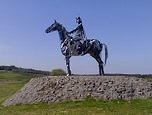
1599 There is plague outbreak in Spain. In Feb. Cambridge-educated historian Sir John Hayward (1560-1627) pub. The First Part of the Life and Raigne of King Henry the Fourth, dedicated to Robert Devereux, 2nd earl of Essex, which pisses-off Elizabeth I at the thought that the public might equate Essex with Henry Bolingbroke, and after ordering Sir Francis Bacon to find ways he can be charged for treason, to which Bacon comes back with the soundbyte: "Surely I found none, but for felony very many" because he plagiarized Tacitus, he is imprisoned for having discussed the deposition of a sovereign in print (until 1600); rumors start of an Essex coup on the aging queeny? On Mar. 27 the 2nd Earl of Essex leaves London, arrives in Dublin on Apr. 15 with 17K troops, and loses all but 4K of his men by Aug. without engaging Hugh O'Neill directly; on Aug. 15 (eve.) the Battle of Curlew Pass sees 1.5K tired-hungry English infantry and 200 cavalry under Sir Conyers Clifford get ambushed while marching through a pass in the Curlew Mts. near Boyle, W Ireland by an equal number of Irish troops plus 600 musketeers and 160 Gallowglassses led by Red Hugh O'Donnell, losing 231 KIA and 218 wounded vs. unknown losses for the Irish, becoming the last time the Irish Gaelic clans win on Irish soil before their final defeat at Kinsdale in 1601; in 1999 the sculpture the Gaelic Chieftain by Maurice Harron (1946-) is erected 2 km NE of the battlefield; on May 29 the Battle of Deputy's Pass in County Wicklow, Leinster is a V for 450 Irish under Felim McFiach O'Byrne (son of Fiach McHugh O'Byrne) over 500 English under Sir Henry Harrington, who lose 250, vs. only 20 Irish; on Sept. 7 outnumbered 2-to-1, Essex makes a secret truce with Irish rebel Hugh O'Neill at the Ford of Bellaclynth on the River Lagon near Carrickmacross, then suddenly abandons his army on Sept. 24, rushes back to England, and reaches Westminster on Sept. 28, where he brashly barges into the queen's bedchamber all muddy before she has time to put on her weird white (lead or bismuth based?) makeup (he has really done it this time?); after ascertaining that the rumors that he was leading his army to her palace to stage a coup are unfounded, she has him put under house arrest for botching the Ireland expedition (which MP Robert Cecil calls the heaviest loss by the English on Irish soil along with the Battle of Deputy's Pass in Wicklow), and on Nov. 29 the Star Chamber condemns him without a trial, causing him to get (play?) sick to try and get back in the queen's favor, without success? On Apr. 26 Mansa Mahmud IV (Mansa Mamadou III), last great emperor of the Mali Empire attacks Jenne (Jenné) in C Mali, but is repulsed by Moroccan forces from Timbuktu, ending Mali's influence in the middle Niger region and beginning its disintegration - go team? On June 1 Bishop's Ban of 1599 sees Archbishop John Whitgift of Canterbury and Bishop Richard Bancroft of London ban all satires and epigrams, along with any work written by Thomas Nash or Gabriel Harvey, nine specific books by John Davies, Joseph Hall, John Marston et al., and any books pub. without the approval of the Privy Council, becoming "the most sweeping and stringent instance of early modern censorship" (Debora Shuger). On Sept. 18-Oct. 20 Swiss physician Thomas Platter the Younger (1574-1628) visits London theatres, and on Sept. 21 (2:00 p.m.) attends a performance of Shakespeare's "Julius Caesar" at the Globe Theatre, later writing about it and giving precious details, incl. the stench in the dog enclosure in the rear, where 120 English mastiffs are chained in separate kennels next to a stall with 12 large bears, one blind, and another stall with several bulls: "And the place was evil-smelling because of the lights [offal] and meat on which the butchers fed the said dogs." On Sept. 11 (9/11) innocent beautiful 22-y.-o. babe Beatrice Cenci (b. 1577) is executed at Sant'Angelo Bridge in Rome along with three members of her family for murdering her brutal aristocrat dad Francesco, who had sexually abused her, after which she is buried in the Church of San Pietro in Montorio and becomes a symbol of resistance to the aristocracy, complete with a legend about her ghost returning to the bridge each year carrying the severed head; her portrait is painted by Guido Reni (1575-1642), and she later becomes a favorite subject for novelists and playwrights, incl. Percy Bysshe Shelley (who views the portrait in Palazzo Colonna in 1818), Nathaniel Hawthorne, and Alexandre Dumas pere. On Sept. 25 after being put up to it by Prince Iremia Movila of Moldavia (whose brother Simion claims the Wallachian throne), Prince-Cardinal Andrew Bathory of Transylvania issues an ultimatum demanding that Michael the Brave of Wallachia abdicate; on Oct. 18 a joint army led by Michael the Brave and Austrian Hapsburg gen. Giorgio Basta (1544-1607) defeats Bathory in the Battle of Selimbar near Sibiu, and Bathory is killed a few days later; after Michael gives Bathory an impressive funeral in Alba Iulia, he is given the keys to the fortress by Roman Catholic bishop of Kalocsa (since 108) Demeter Napragy (Napragyi) (1564-1619) (chancellor of Transylvania in 1598-1600), and on Oct. 10 the Transylvanian nobles elect him prince of Transylvania, and he acknowledges Hapsburg overlordship while planning to get even with Moldavia. On Dec. 17 James VI of Scotland changes the date of the Scottish New Year (Hogmanay) from Mar. 25 to Jan. 1. Sigismund III lands in Sweden to try to drum-up support for his Roman Catholic reign; too bad, the Swedes don't buy it, and next year the Riksdag formally deposes him. Maximilien de Bethune (Béthune), Duke of Sully (1560-1641), France's supt. of finances reforms taxation, economic policy, agriculture and overseas trade. The Confederation of Vilna is formed in Poland-Lithuania as an alliance between the Eastern Orthodox and Protestants against the pesky Roman Catholic Church, esp. the Jesuits. After spoilsport Christian IV of Denmark takes Uraniborg Castle back, HRE Rudolf II makes Danish astronomer ("The Nose Knows") Tycho Brahe (1546-1601) his royal astronomer and imperial mathematician in Bohemia, with a 3K ducat pension and an estate at Benatky (Benátky) near Prague, complete with a new Uraniborg; too bad, it isn't completed until after his death - lazy Bohemian comments here? China helps Korea expel the Japanese. Barom Reachea III (Ponhea An) becomes king of Cambodia (until 1600). Henri IV of France divorces 40-something Queen Margot (Margaret of Valois) (married one week before the Bartholomew's Day Massacre in 1572). After getting pissed-off at being taxed for their gold trade, the super-fierce head-shrinking Jivaro (Jivoaroan) tribes in the Peruvian Amazon band together and kill 25K Spanish in Logorno and another settlement, after which they are never conquered. The first postal rates are fixed in Germany. The first chamber of commerce is founded in Marseille, France. James VI of Scotland issues a charter to Arbroath. Edmund Spenser (b. 1552) dies, and Samuel Daniel (1562-1619) becomes unofficial poet laureate of England (until Oct. 14, 1619). Robert Bellarmine becomes a cardinal and a member of the Roman Congregation - I want somebody to burn? The Trinh family in N Vietnam takes the title of hereditary prince, pissing-off the rival Nguyen family in S Vietnam; both proceed to set up Confucian state govts. Sir Anthony Shirley (1565-1635) and his brother Sir Robert Shirley (1581-1628) travel to Persia to try and talk Shah Abbas I into attacking the Turks, and are warmly welcomed; elder bro' Anthony is made a prince (mirza) and becomes a Persian envoy, visiting Moscow, Prague, and Rome, but England won't allow him to enter, considering him a traitor (the original Dances With Wolves?), and he ends up a count of the HRE and Spanish adm.; meanwhile he leaves his brother Robert in Persia to modernize the Persian military (introducing muskets and artillery, plus English militia cavalry tactics), and he ends up marrying a Persian Circassian babe and becoming an envoy - it's the good life? Elizabeth I sends Ottoman sultana Sofia Baffo a carriage, which she rides in around Constantinople, scandalizing the pop. although it is covered. William Shakespeare enters his High Fantastical Age (1599-1601). The Farnese Hercules by 1st cent. B.C.E. sculptor Glycon of Athens is found in the ruins of the Baths of Caracalla in Rome. Architecture: The 2.5K-seat open-roofed Globe Theatre (a 20-sided icosagon) in Southwark, London is built by Richard Burbage and the Lord Chamberlain's Men after Giles Allen, owner of the land under the N London Playhouse they had been performing in claimed to own the playhouse as well, causing them to dismantle the building at night and ferry it across the Thames to the S bank and rebuild it; Allen tries to take them to court but loses. Inventions: Rev. William Lee of Calverton, Notts, England develops the first silk-knitting machine. Nonfiction: Ulisse Aldrovandi (1522-1605), Natural History (14 vols.); the first textbook on zoology: three vols. on ornithology (birds) are pub. this year, followed by a vol. on etymology (insects) in 1602; after his death his students go on to pub. 10 more vols. from his notes. Nicholas Breton (1545-1626), The Wil of Wit. Angel Day, The English Secretary. James VI of Scotland, Basilikon Doron (Gr. "royal gift"); pro divine right of kings; written for his son Prince Henry, who dies before becoming king. George Silver, Paradoxes of Defense; claims to prove that "the short sword has advantage over the long sword or rapier", and founds the art of fencing. Art: Giambologna (1529-1608), Hercules Beating the Centaur Nessus (1599); Caravaggio (1571-1610), The Martyrdom of St. Matthew; The Calling of St. Matthew; Jupiter, Neptune and Pluto. Plays: Guillen de Castro y Bellvis (1569-1631), Mocedades del Cid; used by Pierre Corneille as a basis for his "Le Cid" (1636). Thomas Dekker (1570-1632), The Shoemaker's Holiday. Ben Jonson (1572-1637), Every Man Out of His Humour. John Marston (1576-1634), Histriomastix (Middle Temple); how war results from pride, greed, and sloth, dissing women and prof. actors, along with Ben Jonson (Chrisoganus), beginning the War of the Theatres (Poetomachia) with him and Thomas Dekker (1599-1602). George Peele (1556-97), The Love of King David and Fair Bethsabe (posth.). William Shakespeare (1564-1616), Julius Caesar (tragedy) (Brutus has 701 lines, 12th most); Caesar speaks less than 150 lines, and is murdered in Act 3 Scene 1; Julius Caesar and his wife Calphurnia, Mark Antony, Octavius Caesar, Marcus Brutus ("the noblest Roman of them all" - Antony, 5.5.68), Cassius ("Yon Cassius has a lean and hungry look; He thinks too much: Such men are dangerous" - Caesar), Lepidus; the 2nd of four Shakespeare plays to have a ghost on stage ("Great Caesar's ghost") (Richard III, Hamlet, Macbeth); "It was Greek to me" (Casca) (1.2.288); "... and there have sat/ The livelong day, with patient expectation,/ To see great Pompey pass the streets of Rome" (Marullus) (1.1.38-43); "Beware the ides of March" (1.2.18); "Why, man, he doth bestride the narrow world/ Like a Colossus" (Cassius) (1.2.133-4); "Cowards die many times before their deaths;/ The valiant never taste of death but once." (Caesar) (2.2.32-3); "I am constant as the northern star" (Caesar) (3.1.60); "Et tu, Brute? Then fall, Caesar" (Caesar's last words) (3.1.77); "Not that I loved Caesar less, but that I loved Rome more" (Brutus) (3.2.21); "Friends, Romans, countrymen, lend me your ears;/ I come to bury Caesar, not to praise him./ The evil that men do lives after them,/ The good is oft interred with their bones" (Antony) (3.2.79-82); "For Brutus is an honorable man;/ So are they all, all honorable men" (3.2.88-9); "Ambition should be made of sterner stuff" (3.2.98); "This was the most unkindest cut of all" (3.2.188); "Cry Havoc!, and let slip the dogs of war" (3.1.273); "Put a tongue/ In every wound of Caesar, that should move/ The stones of Rome to rise and mutiny" (3.2.232-3); "Forever and forever, farewell, Cassius!/ If we do meet again, why, we shall smile;/ If not, why then, this parting was well made" (5.1.117); "It is is impossible... to look without a revulsion... at this travestying of a great man as a silly braggart, whilst the pitiful gang of mischief-makers who destroyed him are lauded as statesmen and patriots" (George Bernard Shaw); As You Like It (1599-1600) (comedy) (Rosalind has 668 lines, 16th most); based on Thomas Lodge's prose romance "Rosalynde" (1590); set in the Arden Forest in Warwickshire or the Ardennes in France; The Duke, his cross-dressing daughter Rosalind/Ganymede (most admirable Shakespeare character?) and her Herculean wrestler lover Orlando (son of Sir Rowland de Boys), the Duke's brother Duke Frederick, his attending lords Jaques (pr. likes Jakes) and Amiens, his courtier Le Beau, "motley fool" Touchstone the clown (truant court jester) (a touchstone to prove Rosalind's golden spirit), vicar Sir Oliver Martext, Orlando's brother Oliver and Rosalind's friend Celia/Aliena (daughter of Frederick), lovesick shepherd Silvius and Phoebe, old faithful servant Adam (played by Shakespeare?); "Sweep on, you fat and greasy citizens" (2.1.55); "I met a fool i' th' forest,/ A motley fool" (Jaques) (2.7.12-13); "All the world's a stage, and all the men and women merely players" (Jaques) (2.7.139-40); "Time travels in divers paces with divers persons" (3.2.328); "When a man's verses cannot be understood, nor a man's good wit seconded with the forward child, understanding, it strikes a man more dead than a great reckoning in a little room" (Touchstone) (3.3.9-11) (reference to Marlowe?); "Dead shepherd, now I find thy saw of might: "Who ever lov'd that lov'd not at first sight?" (3.5.91) (from Christopher Marlowe); "Men have died from time to time, and worms have eaten them, but not for love" (Rosalind) (4.1.103); "Why then, can one desire too much of a good thing?" (Rosalind) (4.1.116-7); "Men are April when they woo, December when they wed. Maids are May when they are maids, but the sky changes when they are wives" (Rosalind) (4.1.136-8). William Shakespeare (1564-1616), The Tragedy of Hamlet, Prince of Denmark (1600-1) (tragedy) (a first vers. was written in 1588-93?); set in Elsinore (Helsingor) (site of Kronborg Castle); hammy Hamlet has 1,422 lines, most of any Shakespearean role; Shakespeare plays the ghost?; Ophelia's death is based on the death of Shakespeare's 5-y.-o. cousin Jane Shaxspere (-1569), whose lifeless body was found in a pond in Upton Warren, Worcestershire 20 mi. from Stratford-upon-Avon in 1569?; Danish prince Hamlet avenges the murder of his father the king by killing evil uncle Claudius while fighting bipolar disease?; Prince Hamlet of Denmark, King Claudius of Denmark (Hamlet's uncle) and Queen Gertrude (Hamlet's mother), sententious advisor Polonius and his son Laertes and daughter (Hamlet's babe?) Ophelia (who goes mad); Norwegian Prince Fortinbras; Hamlet's loyal friend Horatio and disloyal friends Rosencrantz and Guildenstern; the fictitious play "The Murder of Gonzago"; "Some say that ever 'gainst that season comes/ Wherein our Saviour's birth is celebrated,/ This bird of dawning singeth all night long;/ And then, they say, no spirit dare stir abroad,/ The nights are wholesome, then no planets strike,/ No fairy takes, nor witch hath power to charm,/ So hallow'd and so gracious is the time." (1.1.11-17); "Not a mouse stirring" (1.1.10); "The memory be green" (1.2.2); "Frailty, thy name is woman!" (1.2.146); "It is not nor it cannot come to good" (1.2.158); "Thrift, thrift, Horatio! The funeral baked meats/ Did coldly furnish forth the marriage table" (Hamlet) (1.2.180-1); "In my mind's eye, Horatio" (1.2.185); "I doubt some foul play" (1.2.254); "Do not, as some ungracious pastors do,/ Show me the steep and thorny way to heaven,/ Whiles, like a puff'd and reckless libertine,/ Himself the primrose path of dalliance treads,/ And recks not his own rede" (1.3.51-5); "Neither a borrower nor a lender be,/ For loan oft loses both itself and friend" (Polonius) (1.3.75-6); "This above all: to thine own self be true,/ And it must follow, as the night the day,/ Thou canst not then be false to any man" (Polonius to Laertes) (1.3.78-82); "Something is rotten in the state of Denmark" (1.4.90); "Murder most foul, as in the best it is" (1.5.27); "Yea, from the table of my memory/ I'll wipe away all trivial fond records" (1.5.98-9); "Within the book and volume of my brain" (1.5.103); "One may smile, and smile, and be a villain" (1.5.108); "There are more things in heaven and earth, Horatio, than are dreamt of in your philosophy" (Hamlet) (1:5.166); "To put an antic disposition on" (1.5.172); "The time is out of joint" (1.5.188); "They say an old man is twice a child" (2.2.413); "The play, I remember, pleased not the million; 'twas/ caviare to the general" (2.2.465); "They are the abstracts and brief chronicles of the time" (2.2.555); "Oh! what a rogue and peasant slave am I" (2.2.584); "What's Hecuba to him or he to Hecuba,/ That he should weep for her?" (2.2.593); "Brevity is the soul of wit... More matter, with less art" (2.2.90-5); "The apparel oft proclaims the man" (Polonius); "There is nothing either good or bad, but thinking makes it so" (2.2.259); "This goodly frame, the earth, seems to me a sterile promontory" (2.2.317); "What a piece of work is a man! How noble in/ reason! how infinite in faculty! in form, in moving,/ how express and admirable! in action how like an/ angel! in apprehension how like a god!" (2.2.322-5); "The play's the thing/ Wherein I'll catch the conscience of the king" (Hamlet) (2.2.641); "To be, or not to be: that is the question/ Whether 'tis nobler in the mind to suffer/ The slings and arrows of outrageous fortune,/ Or to take arms against a sea of troubles,/ And by opposing end them?/... To die, to sleep;/ To sleep: perchance to dream: ay, there's the rub;/ For in that sleep of death what dreams may come/ When we have shuffled off this mortal coil/ Must give us pause" (Hamlet) (3.1.56-68); "The undiscover'd country from whose bourn/ No traveler returns" (3.1.79-80); "There's hope a great man's memory may outlive his life half a year" (3.2.141); "For 'tis a question left us yet to prove,/ Whether love lead fortune or else fortune love" (Player King) (3.2.197-8); "The lady doth protest too much, methinks" (3.2.242); "My words fly up, my thoughts remain below/ Words without thoughts never to heaven go" (Claudius) (3.3); "Oh shame! where is thy blush?" (3.4.82); "I must be cruel only to be kind" (3.4.178); "A man may fish with the worm that hath eat of a king,/ and eat of the fish that hath fed of that worm" (4.3.29); "We know what we are, but know what we may be" (4.5.43); "Alas! poor Yorick. I knew him, Horatio; a fellow of/ infinite jest, or most excellent fancy" (5.1.201-2); "Sweets to the sweet: farewell" (5.1.265); "Any dog will have his day" (5.1.313); "There's a divinity that shapes our ends,/ Rough-hew them how we will" (5.2.10); "It did me yeoman's service" (5.2.36); "The rest is silence" (Hamlet's last words) (5.2.372); "Good night, sweet prince,/ And flights of angels sing thee to thy rest!" (5.2.373); an "artistic failure" (T.S. Eliot); "The only objection to Hamlet is that it exists" (Ralph Waldo Emerson). Poetry: William Jaggard (1568-1623), The Passionate Pilgrim; printed by a London publisher whose shop is "at the sign of the Half-Eagle in Barbican", who later pub. Shakespeare's First Folio; contains 20 pieces attributed to "W. Shakespeare", of which only five really are?; some are claimed by Richard Barnfield, becoming his last work, after which dies in the London plagues. Samuel Daniel (1562-1619), Poetical Essays; incl. Musophilus, A Letter from Octavia to Marcus Antonius. Sir John Davies (1569-1626),Nosce Teipsum (Lat. "Know Thyself"); Hymns of Astraea; acrostic poems addressed to "Elizabetha Regina". Mary Sidney Herbert (1561-1621), The Sidney Psalms; presented to Elizabeth I; a trans. of the Psalms based on the 1560 Geneva Bible and commentaries of John Calvin and Theodore Beza (1519-1605), started by her brother Philip Sidney. Francois de Malherbe (1555-1628), Consolation a Duperier. Novels: Mateo Aleman (Alemán), Guzman de Alfarache (1599-1604) (picaresque); the son of a bankrupt Genoese moneylender. Births: Flemish Baroque painter ("the Mozart of Painting") Sir Antoon (Anthony) van Dyck (Vandyke) (d. 1641) on Mar. 22 in Antwerp; 7th child of silk merchant Frans van Dyck; apprentices at age 10 (1609) to painter Hendrick van Balen; pupil of Peter Paul Rubens (1618-20); in 1632 Charles I of England becomes his royal patron and knights him. English gen., statesman, Lord Protector of England and crypto-prophet ("more butcher than king in England") Oliver Cromwell (d. 1658) on Apr. 25 in Huntingdon, Cambridgeshire; 2nd son of Robert Cromwell; great-grandson of Richard Cromwell (Williams), nephew of Thomas Cromwell, earl of Essex (1485-1540); father of Richard Cromwell (1626-1712); educated at Huntingdon Free School under Puritan Dr. Thomas Beard, and Sidney Sussex College, Cambridge U. (1616-7); known for having three big moles on his face and telling his portraitist to show "warts and all"; his life rides a river of Millennium Fever straight to the year 1666; it helps being born in 1599 (66 upside down), along with the fact that 1+5=6? Spanish "Las Meninas", "The Rokeby Venus" #1 Baroque painter Diego Rodriguez de Silva y Velazquez (Velázquez) (Velasquez) (d. 1660) on June 6 in Seville, Andalusia; masters every branch of painting except marine? Swiss Baroque sculptor-architect Francesco Borromini (Castelli) (d. 1667) on Sept. 25 in Bissone, Ticino; asst. to Gian Lorenzo Bernini. English statesman-writer Sir Denzil Holles, 1st Baron Holles (d. 1680) on Oct. 31; 2nd son of John Holles, 1st earl of Clare (1564-1637) and Anne (daughter of Sir Thomas Stanhope). German electress Maria Eleonore of Brandenburg (d. 1655) on Nov. 11. Dutch painter Pieter Bodding van Laer (d. 1642) on Dec. 14 in Haarlem. Austrian field marshal Prince Octavio Piccolomini d'Aragona, Duke of Amalfi (d. 1656) in Florence. Italian Pope (1655-67) Alexander VII (Fabio Chigi) (d. 1667). Am. Pilgrim settler (cooper) John Alden (d. 1687) in Southampton, Hampshire, (Harwich, Essex?) England. Deaths: Italian radical Domenico Scandella (b. 1532) in Montereale (burned at the stake for heresy). Ottoman religious scholar Saduddin Efendi (b. 1536); leaves Taj ul-Tevarih (The Crown of Histories), a history of the Ottoman Empire to 1520. Korean field marshal Gwon Yul (b. 1537). English writer Reginald Scot (b. 1538) on Oct. 9 in Smeeth, Kent. Italian-Dutch painter Friedrich Sustris (b. 1540) in Munich. Ottoman historian Mustafa Ali (b. 1541); leaves Kunh ul-Ahbar (a universal history), and Book of Counsel for Sultans (1581), lamenting the Ottoman decline. Good year to die young? English poet Edmund Spenser (b. 1552). Italian composer Luca Marenzio (Marencio) (b. 1553). Italian tragic heroine Beatrice Cenci (b. 1577) on Sept. 11 at Sant'Angelo Bridge, Rome (beheaded).